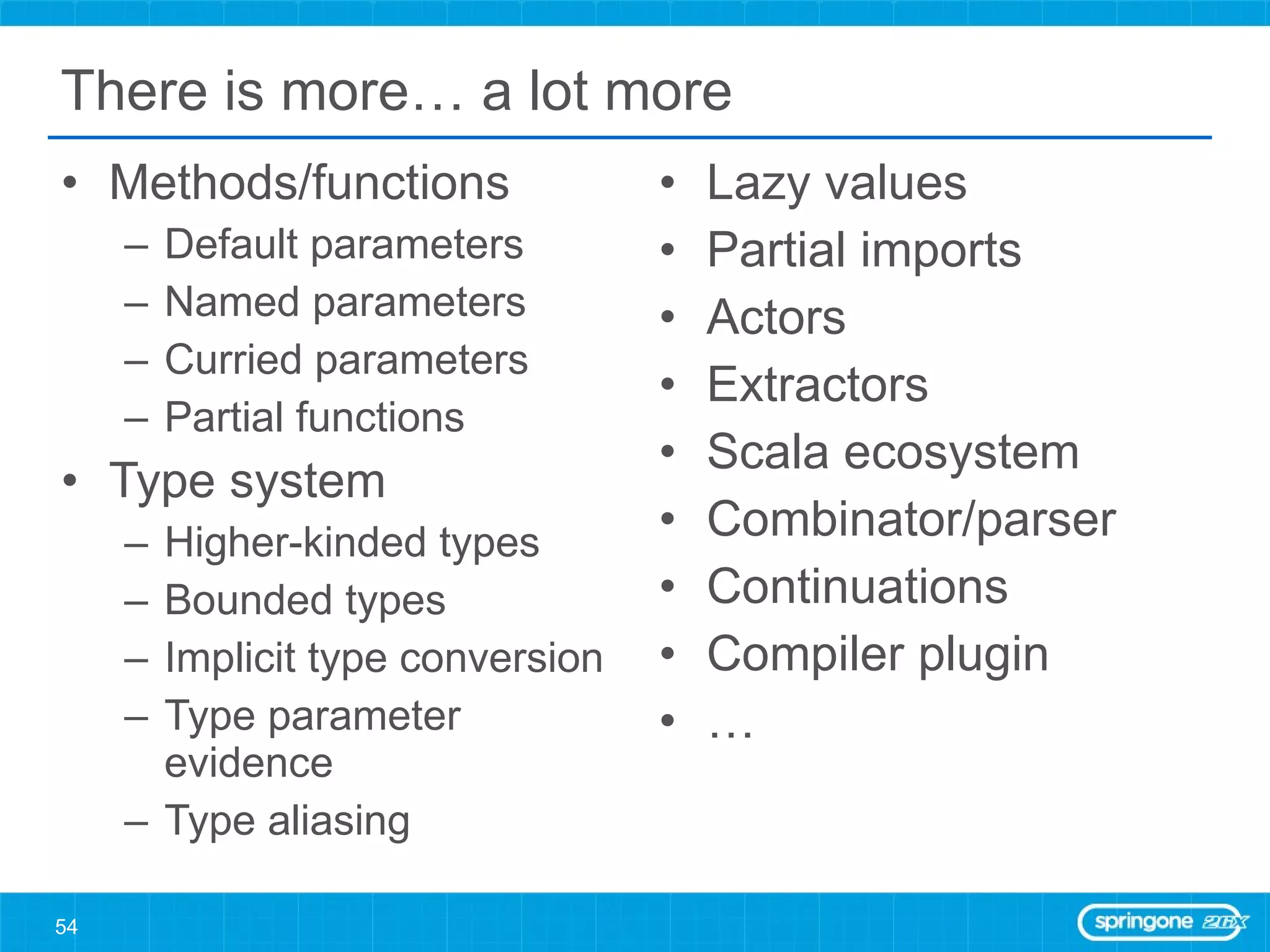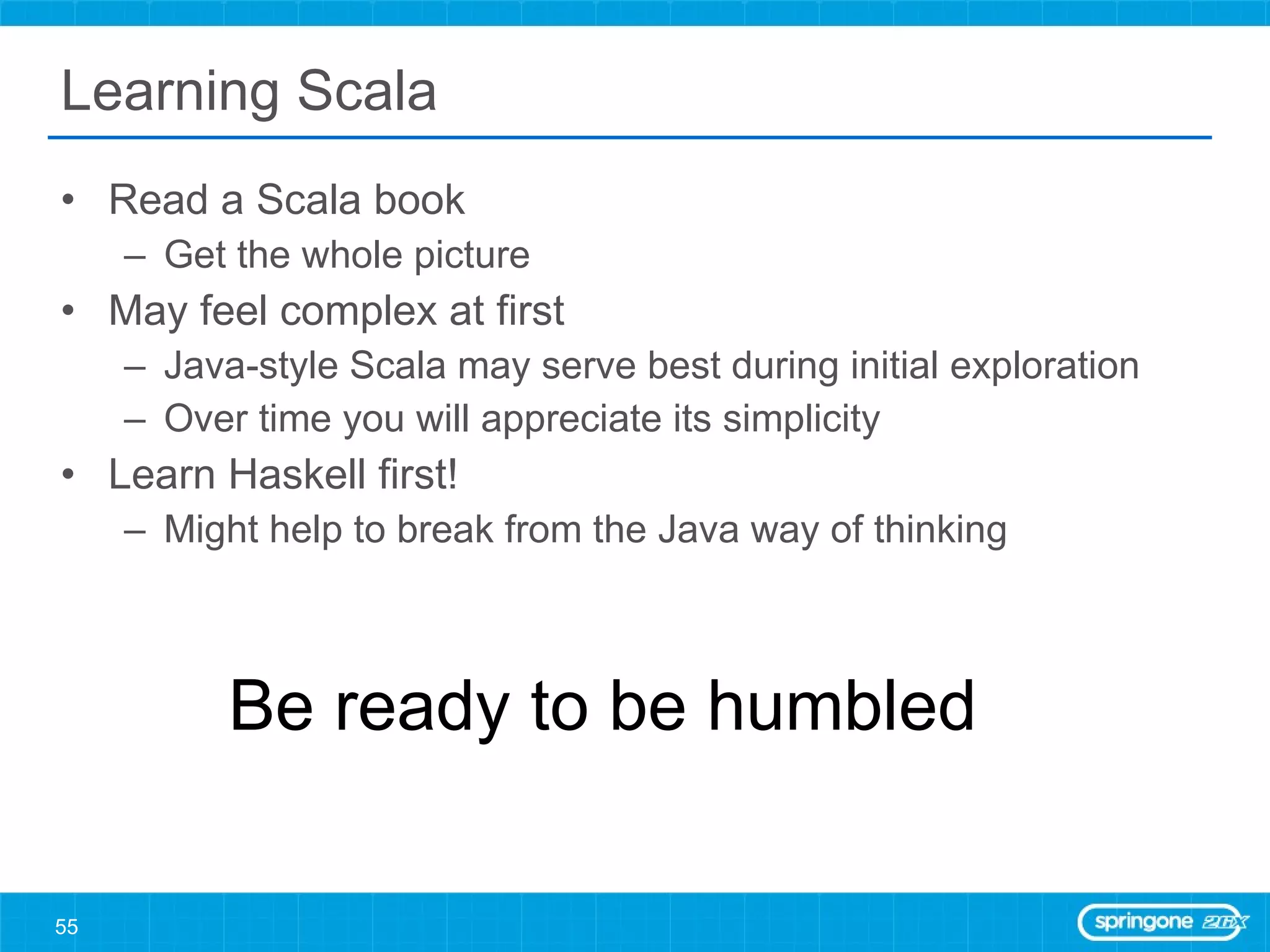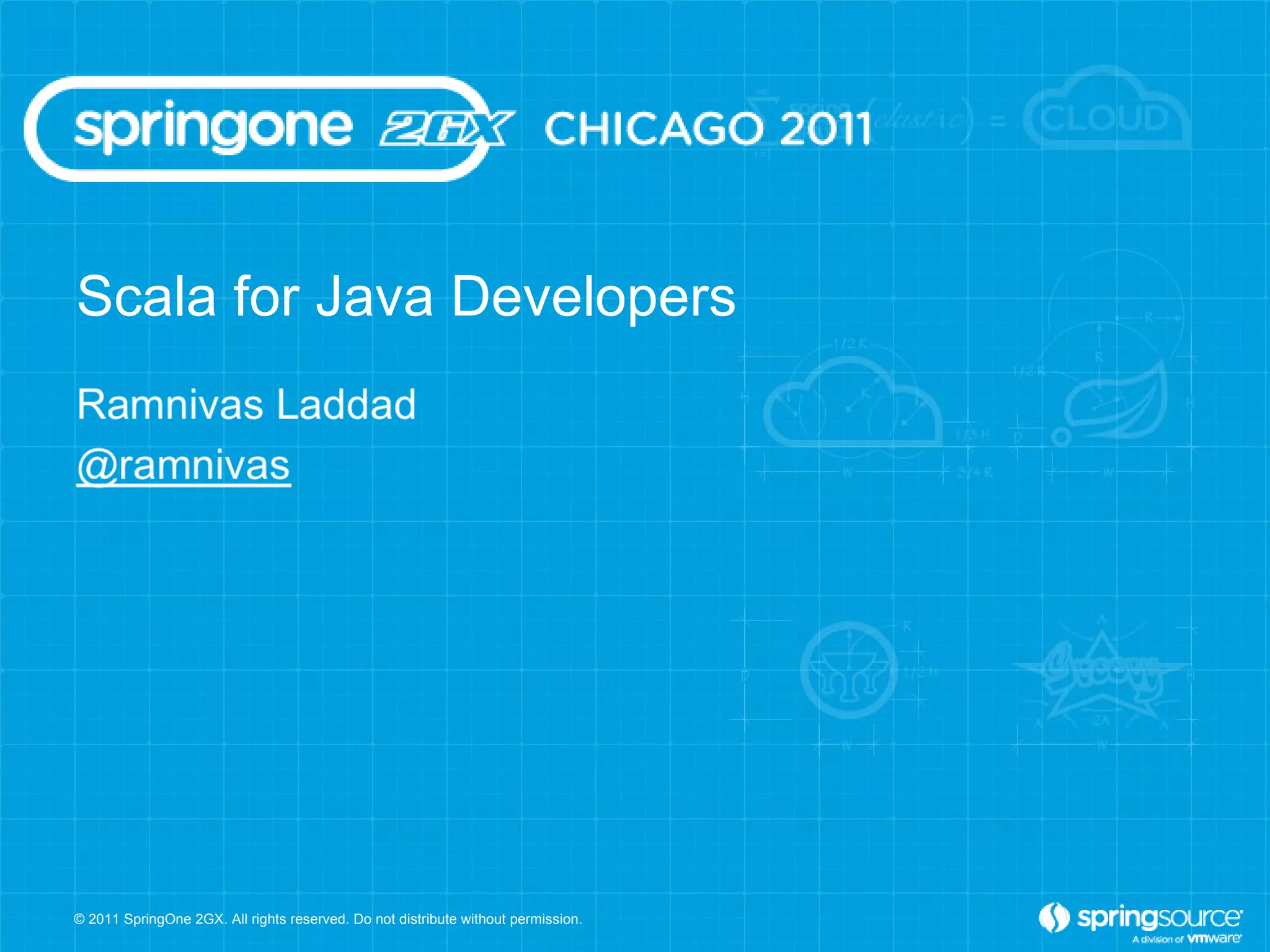The document provides an overview of Scala, a general-purpose programming language that integrates object-oriented and functional programming paradigms to enhance productivity for Java developers. It covers key features and concepts of Scala, including its concise syntax, type system, interoperability with Java, and practical coding examples showcasing classes, methods, and collections. It also discusses advanced topics like pattern matching, higher-order functions, and transaction management.
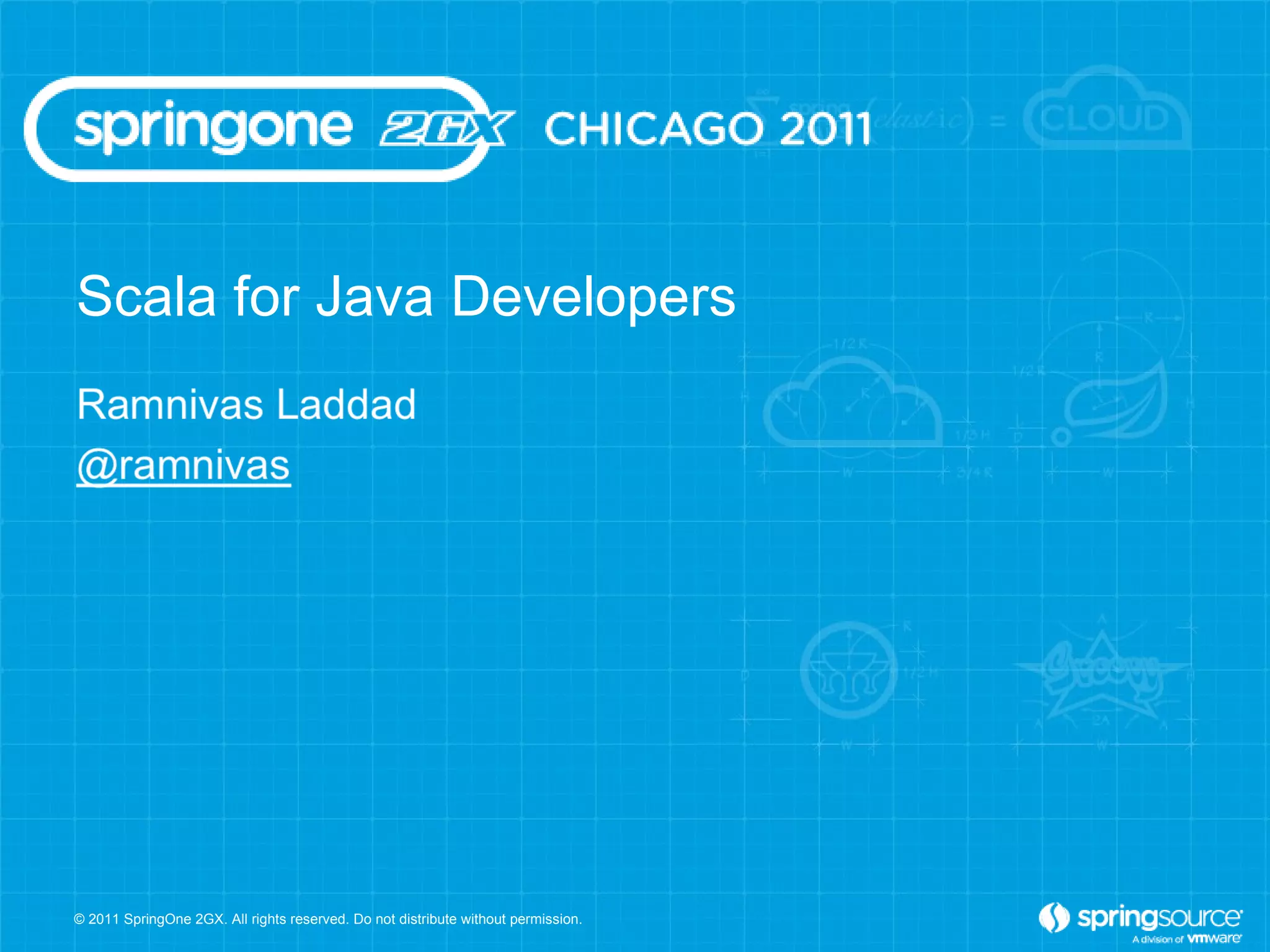
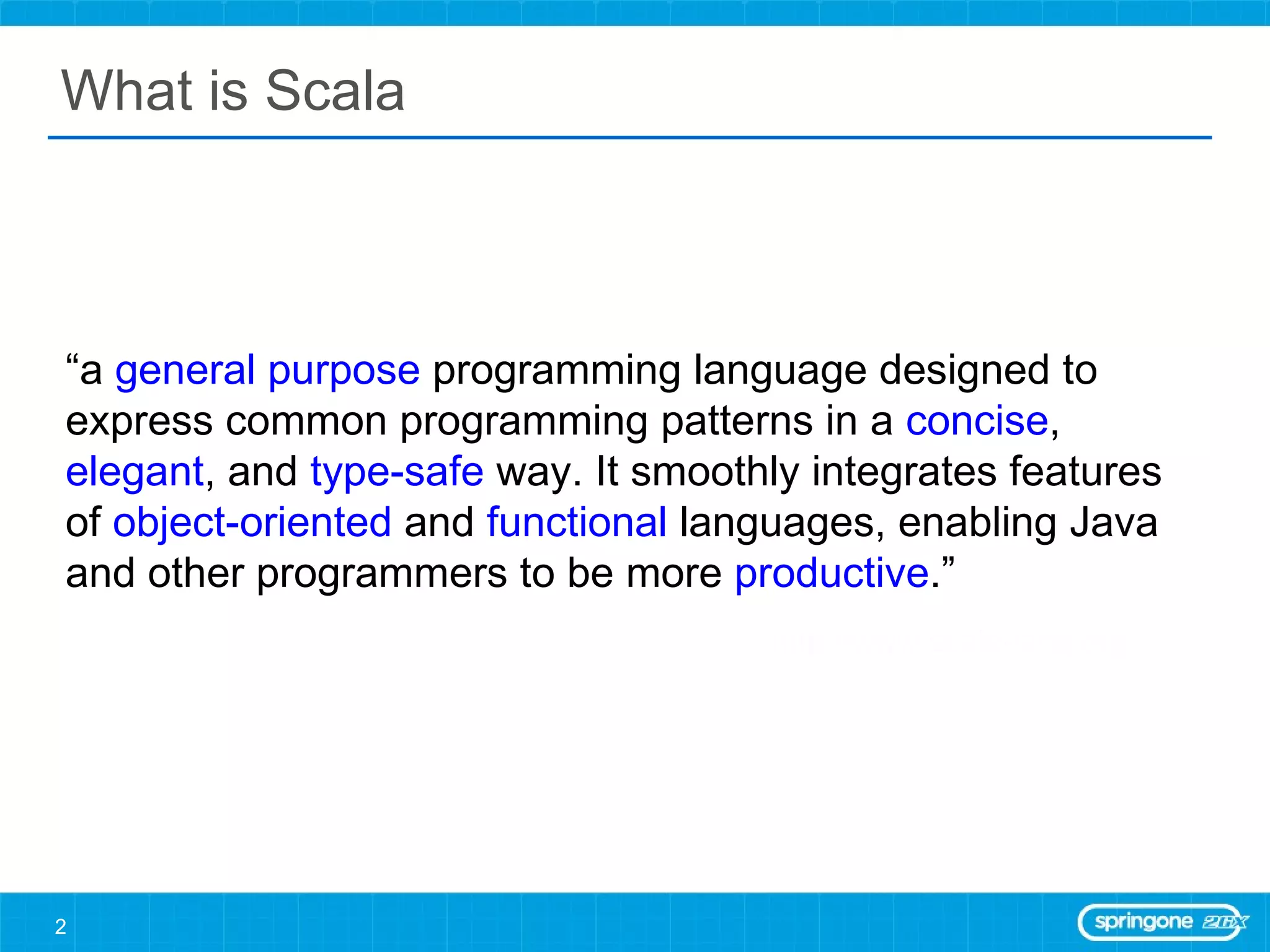
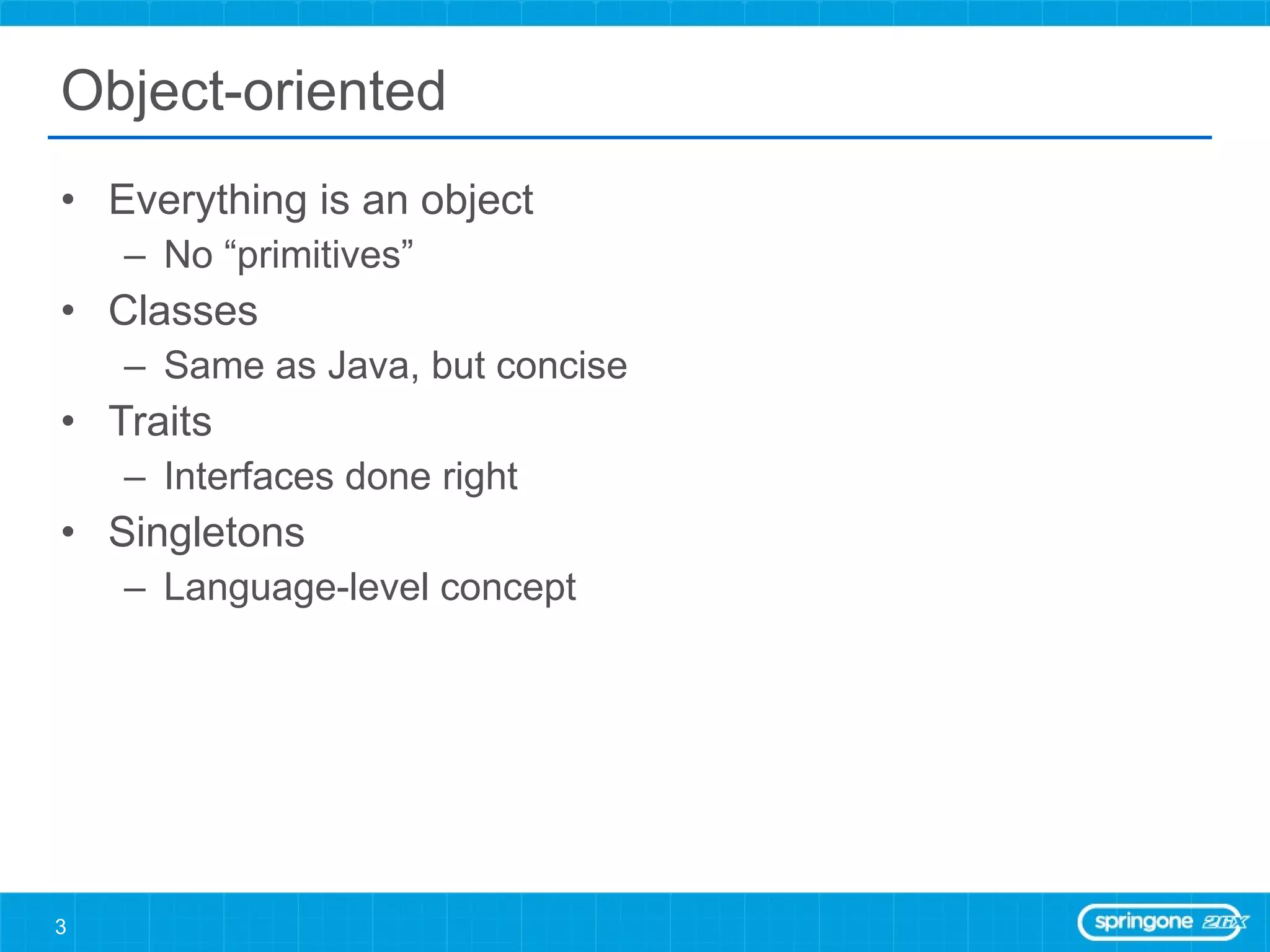
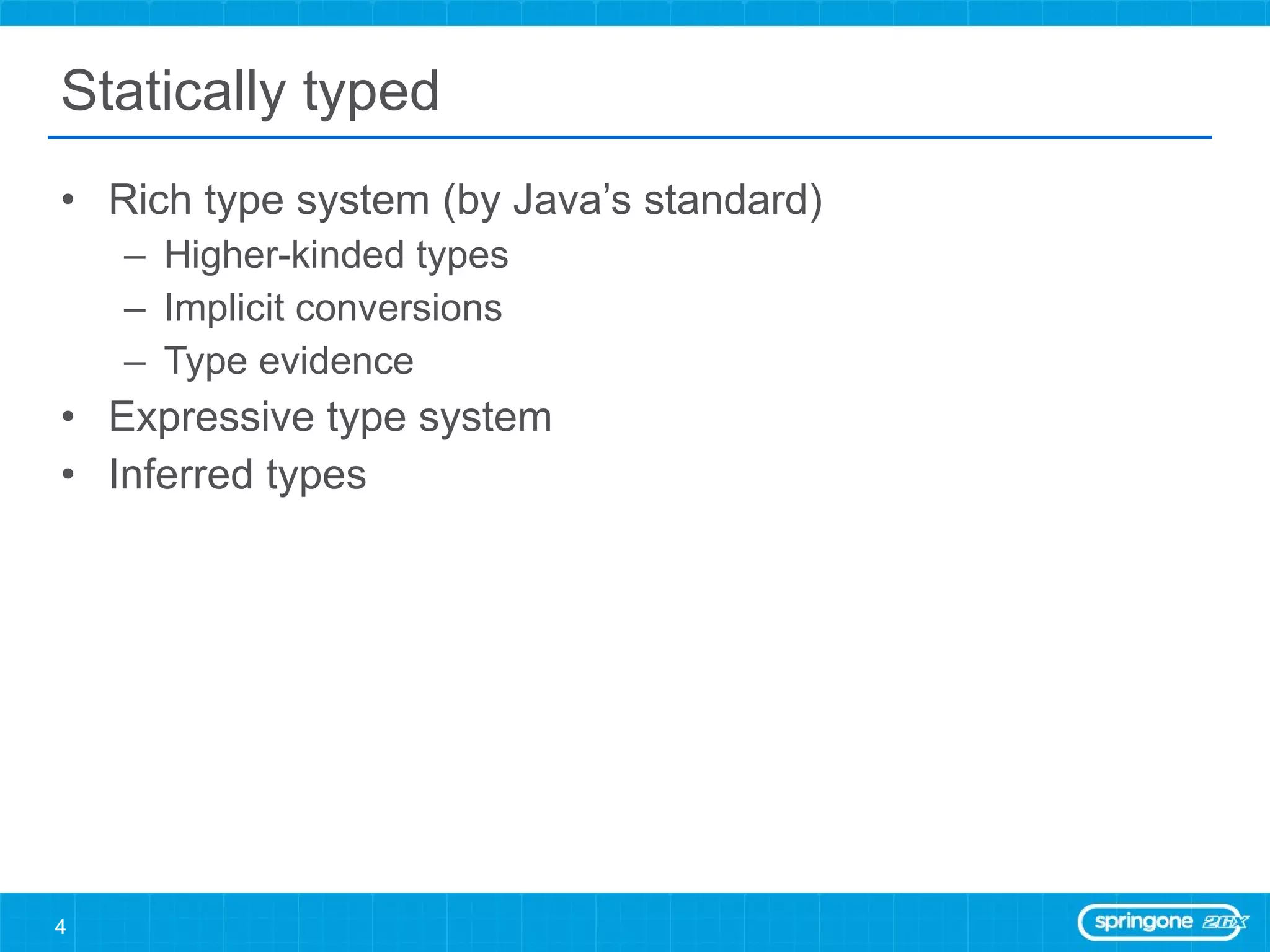
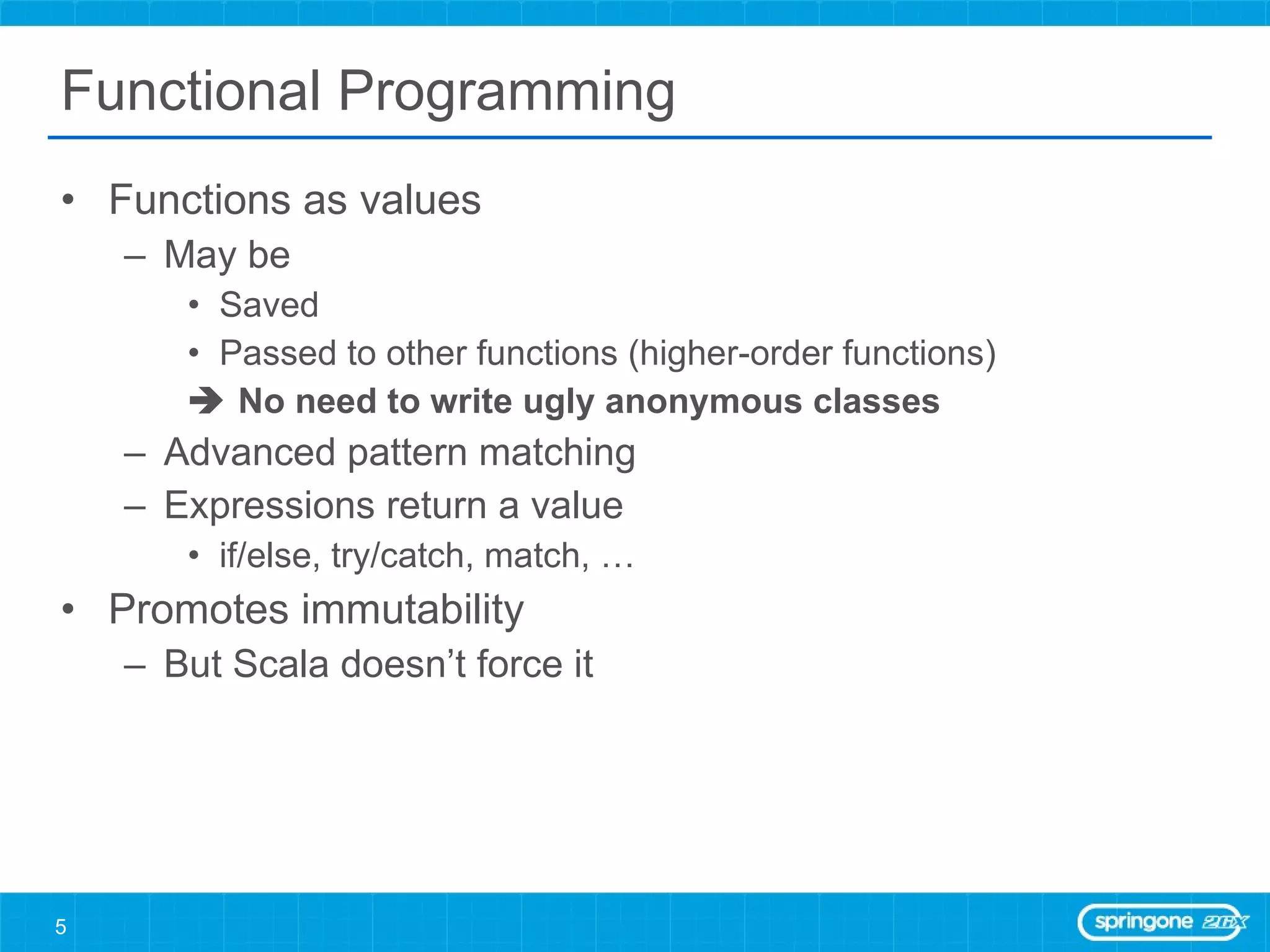
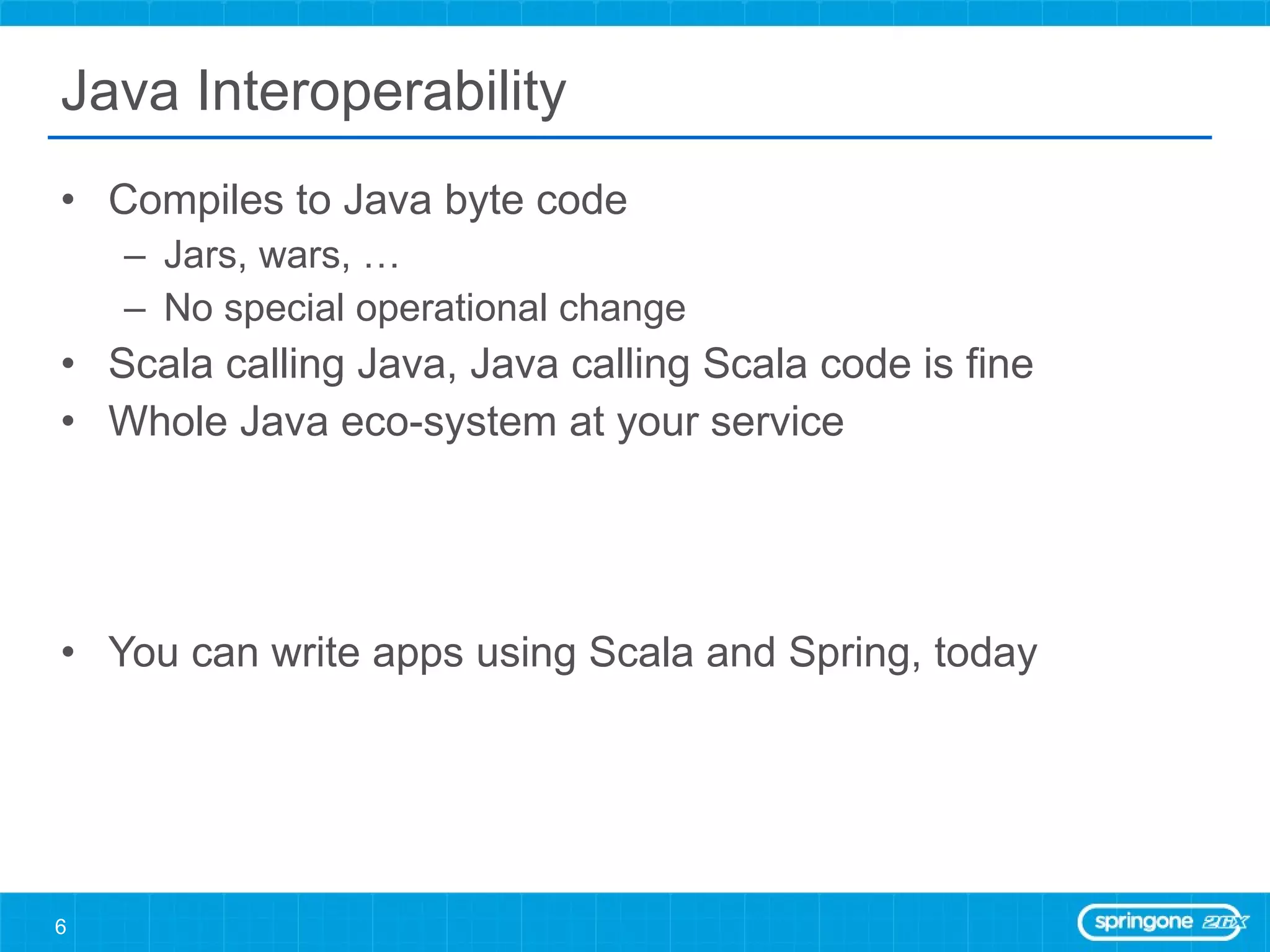
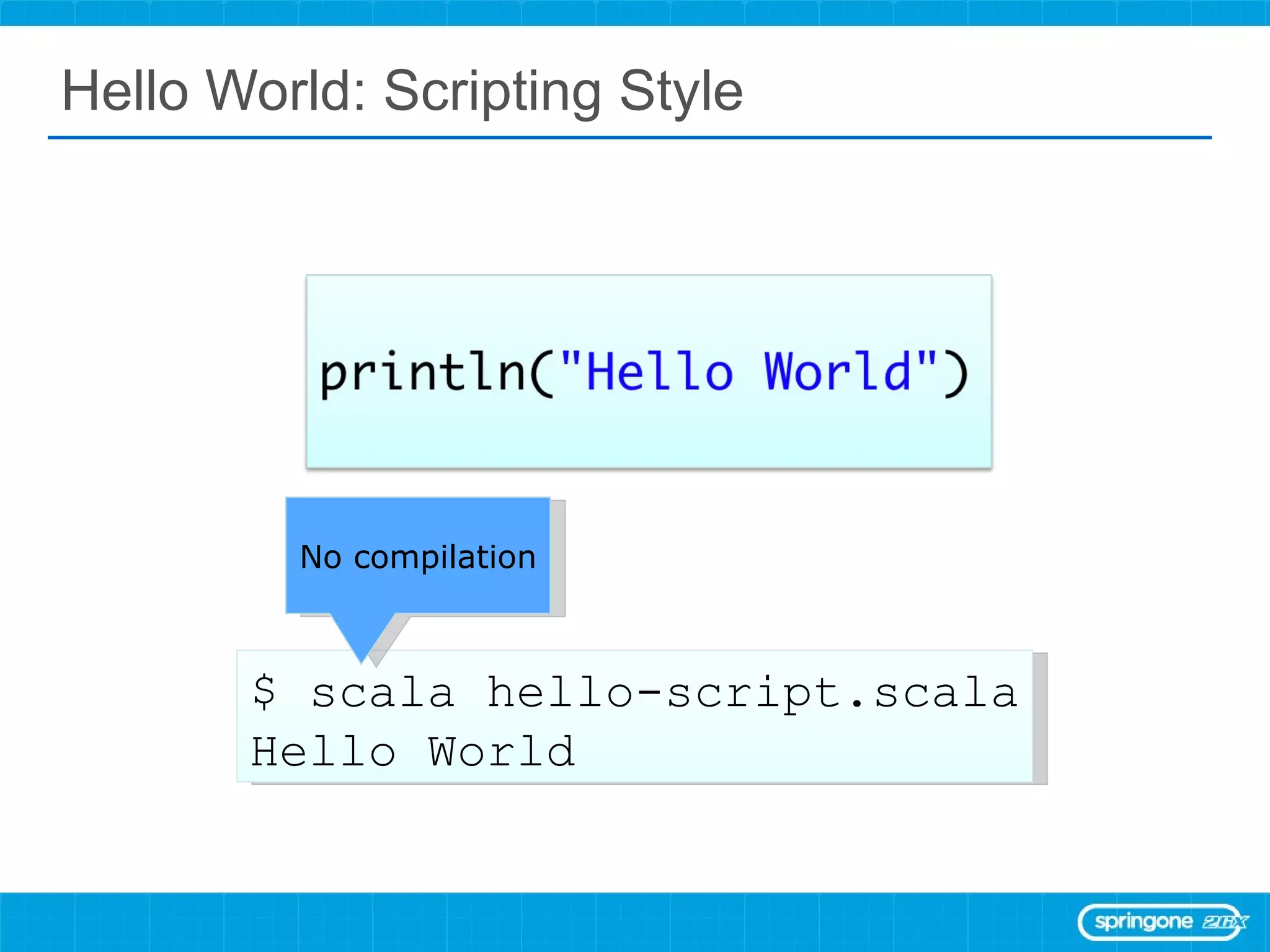
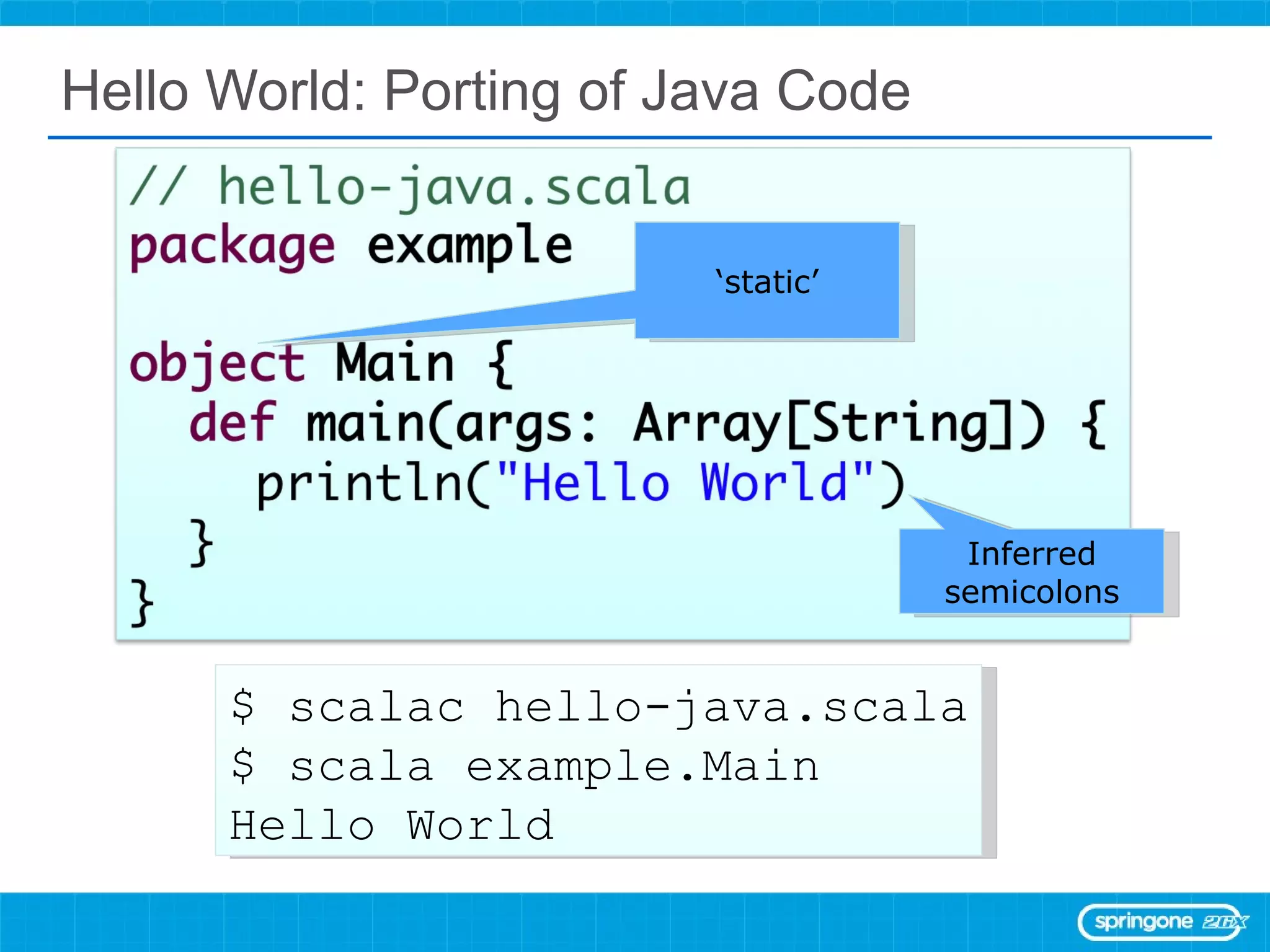
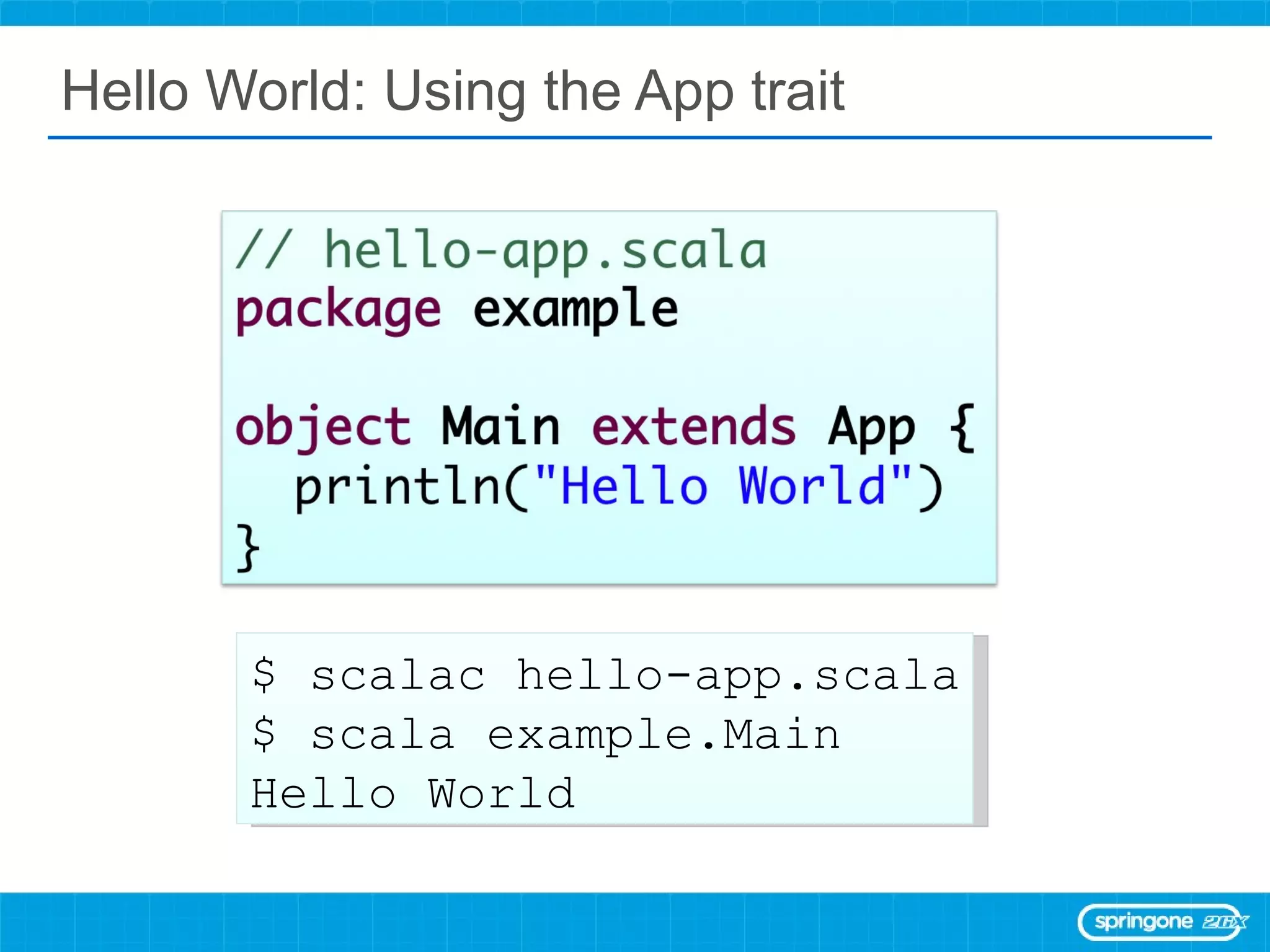
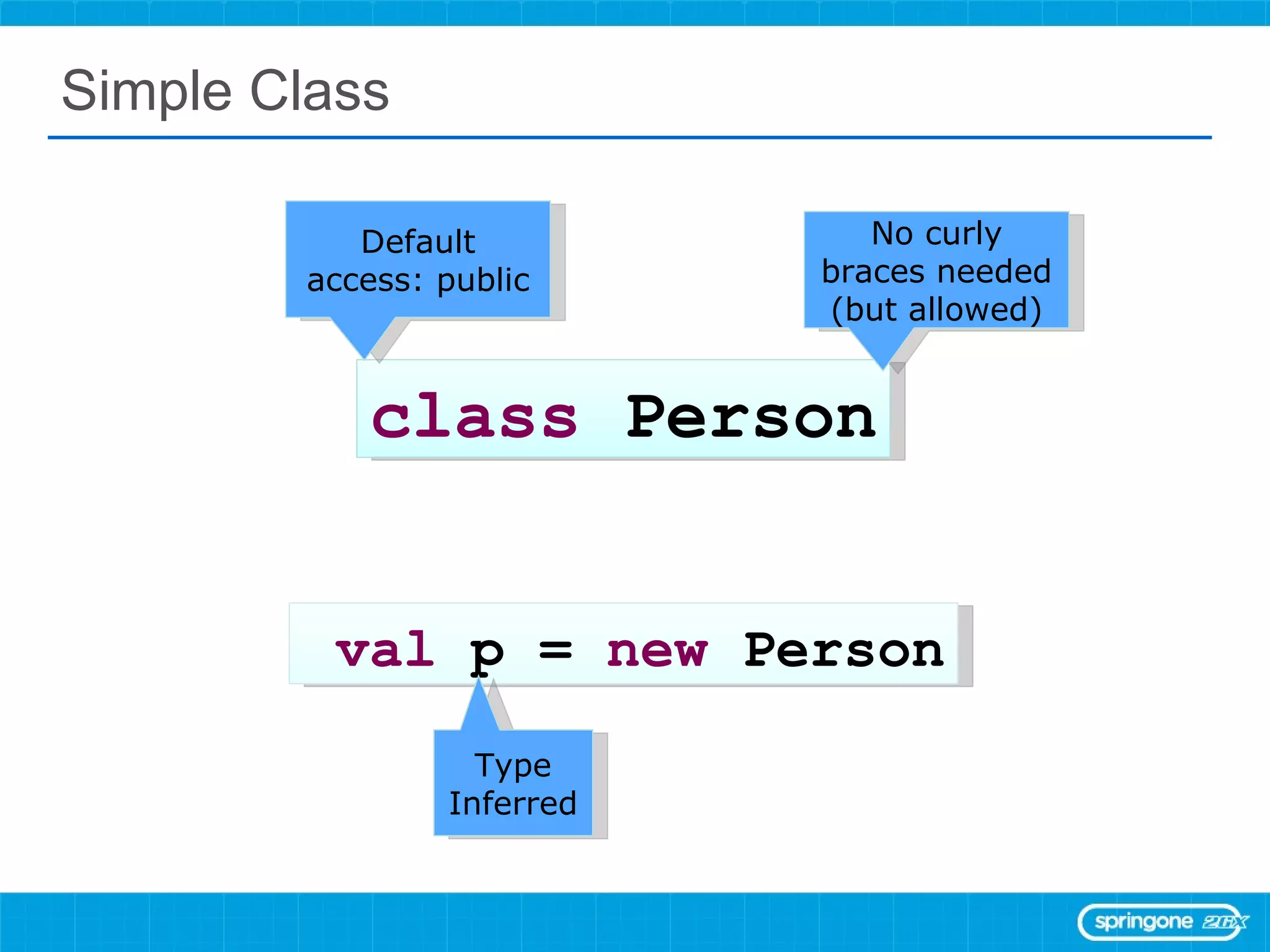
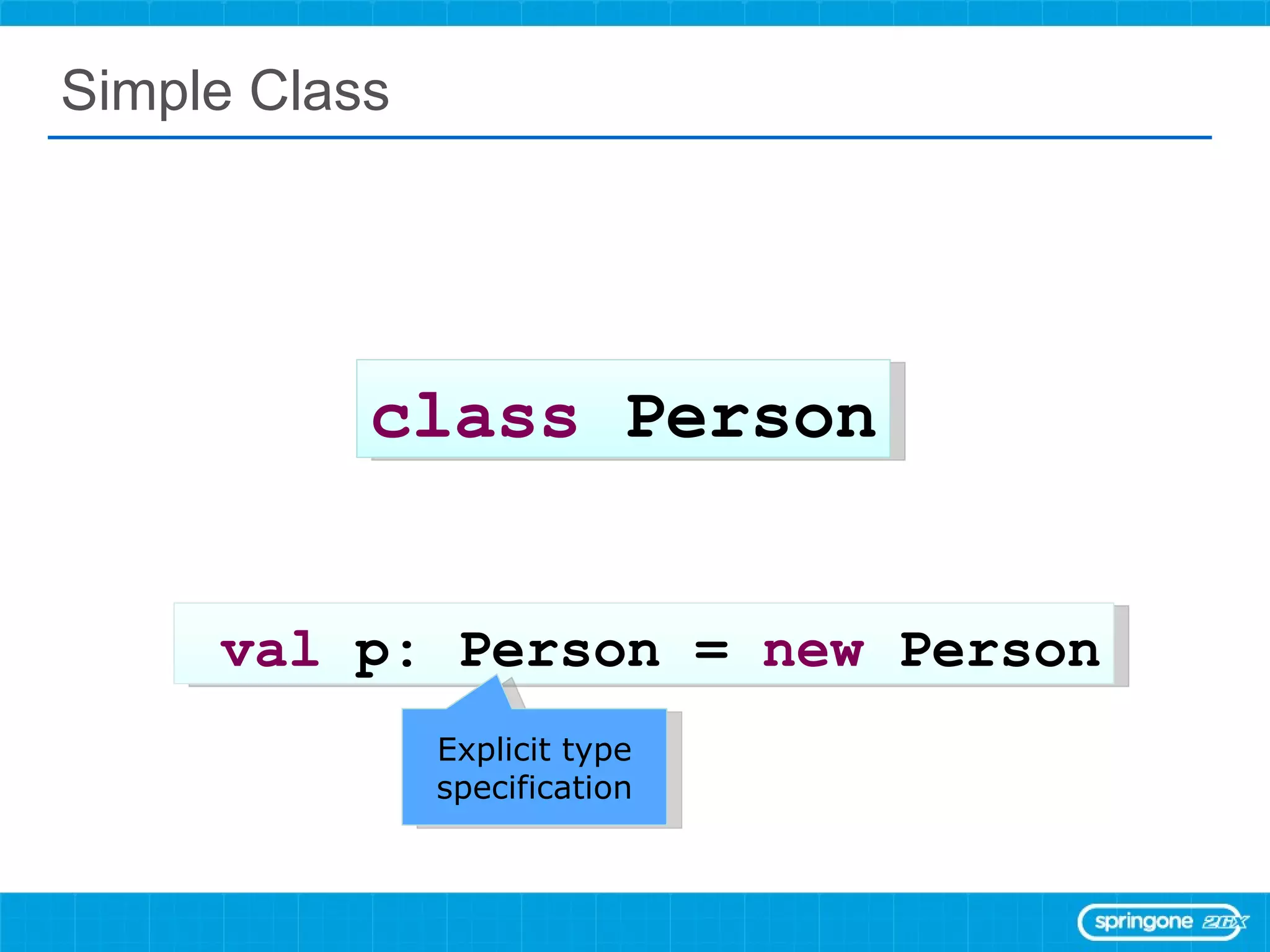
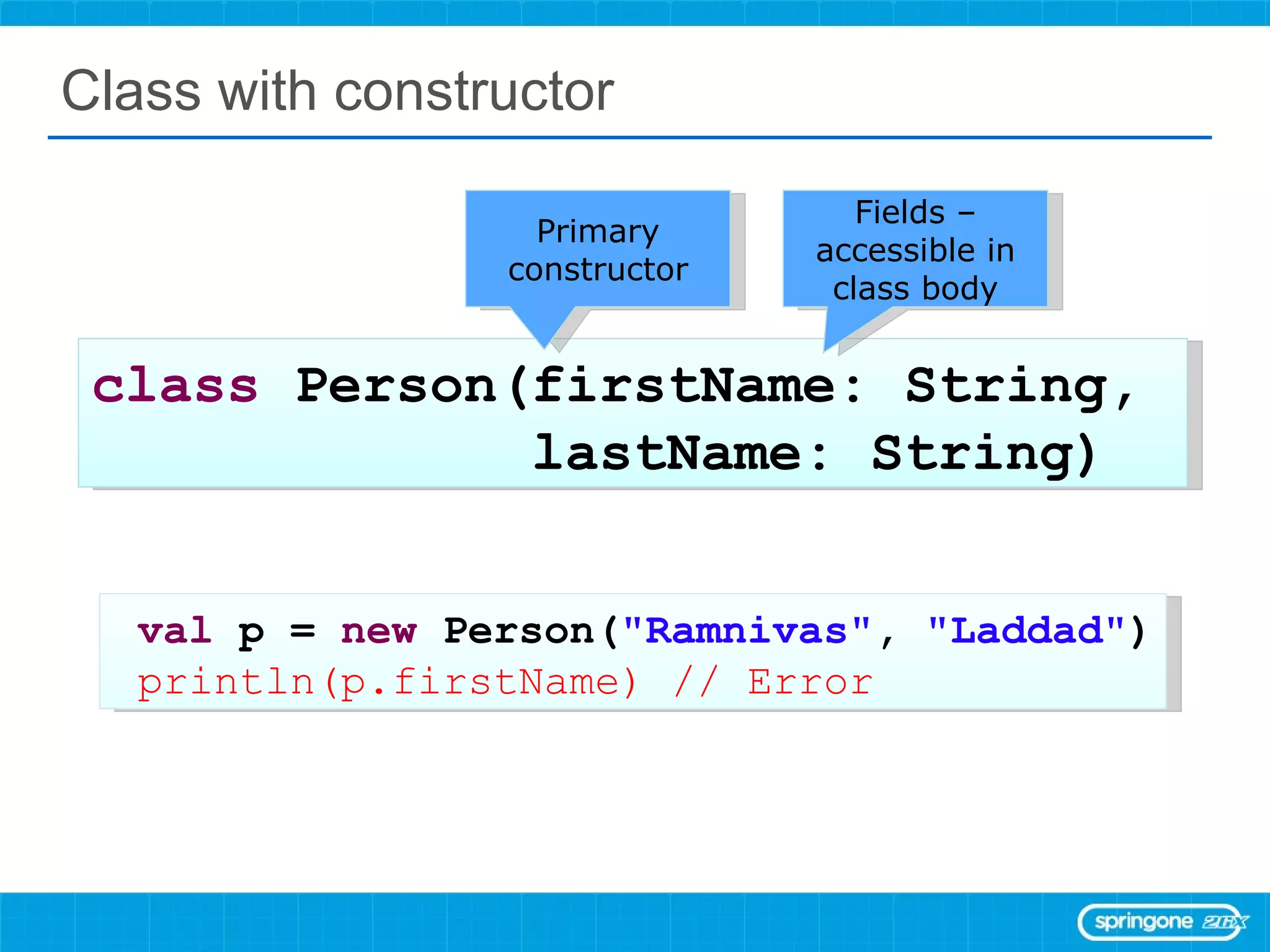
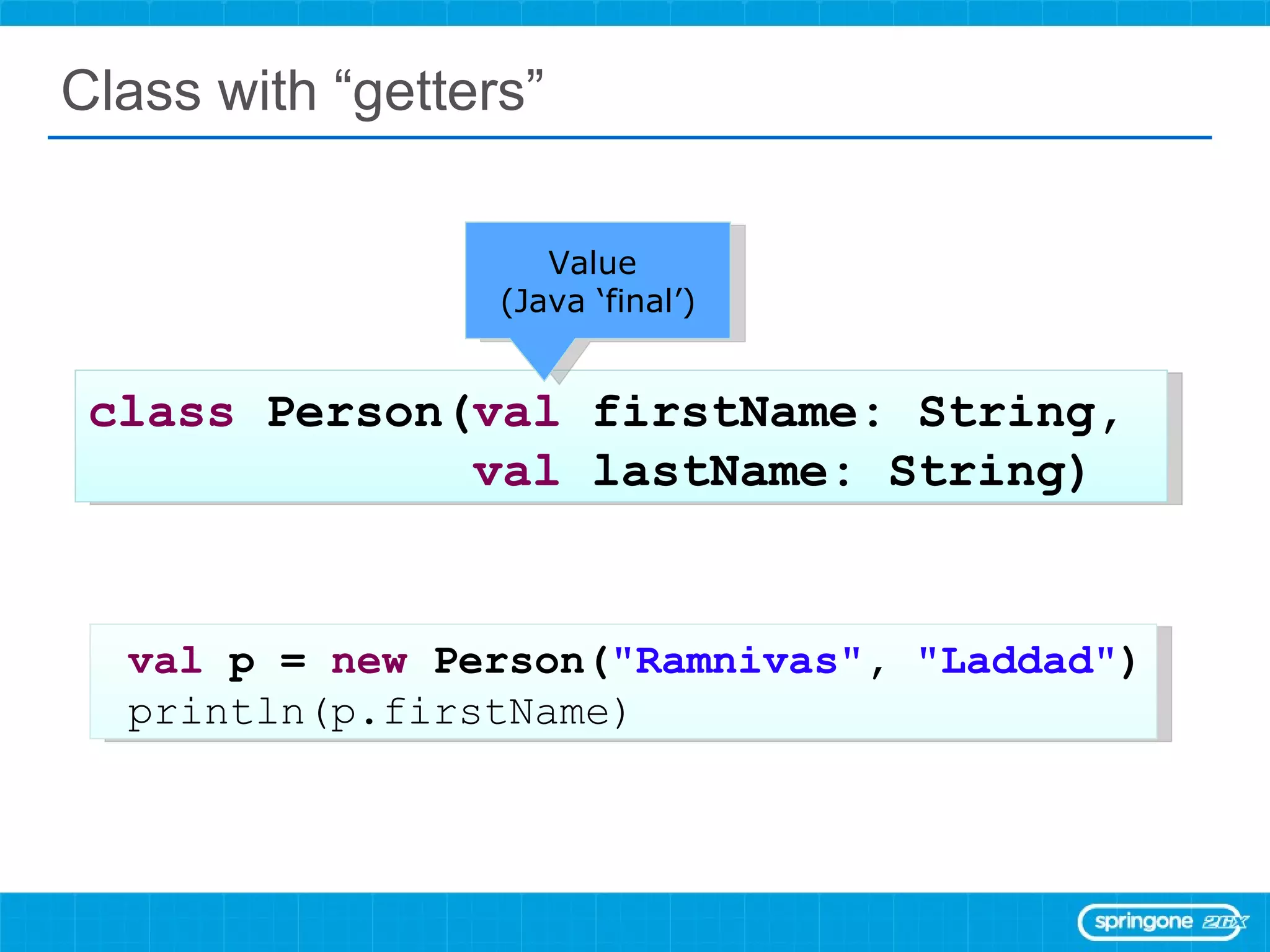
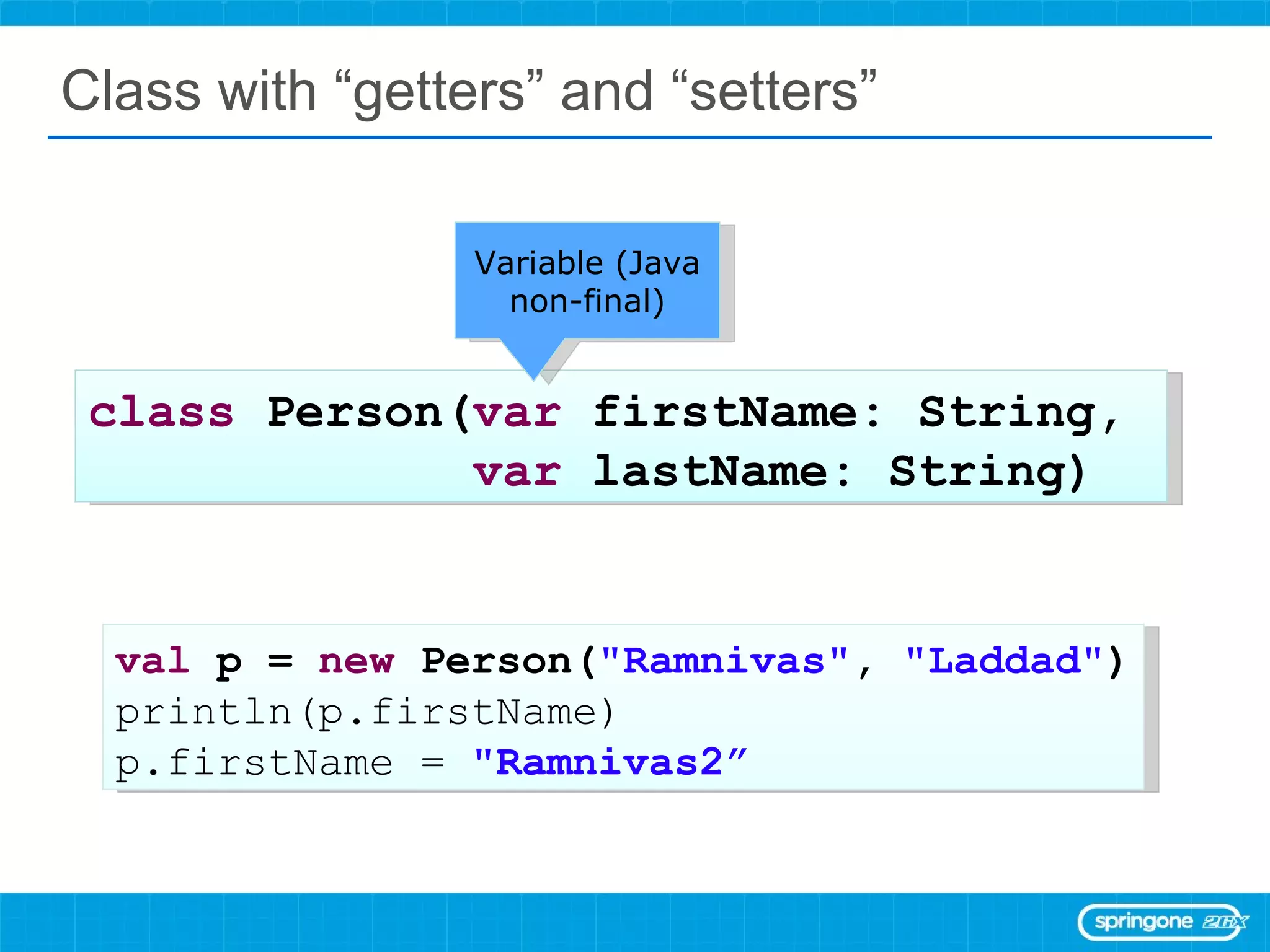
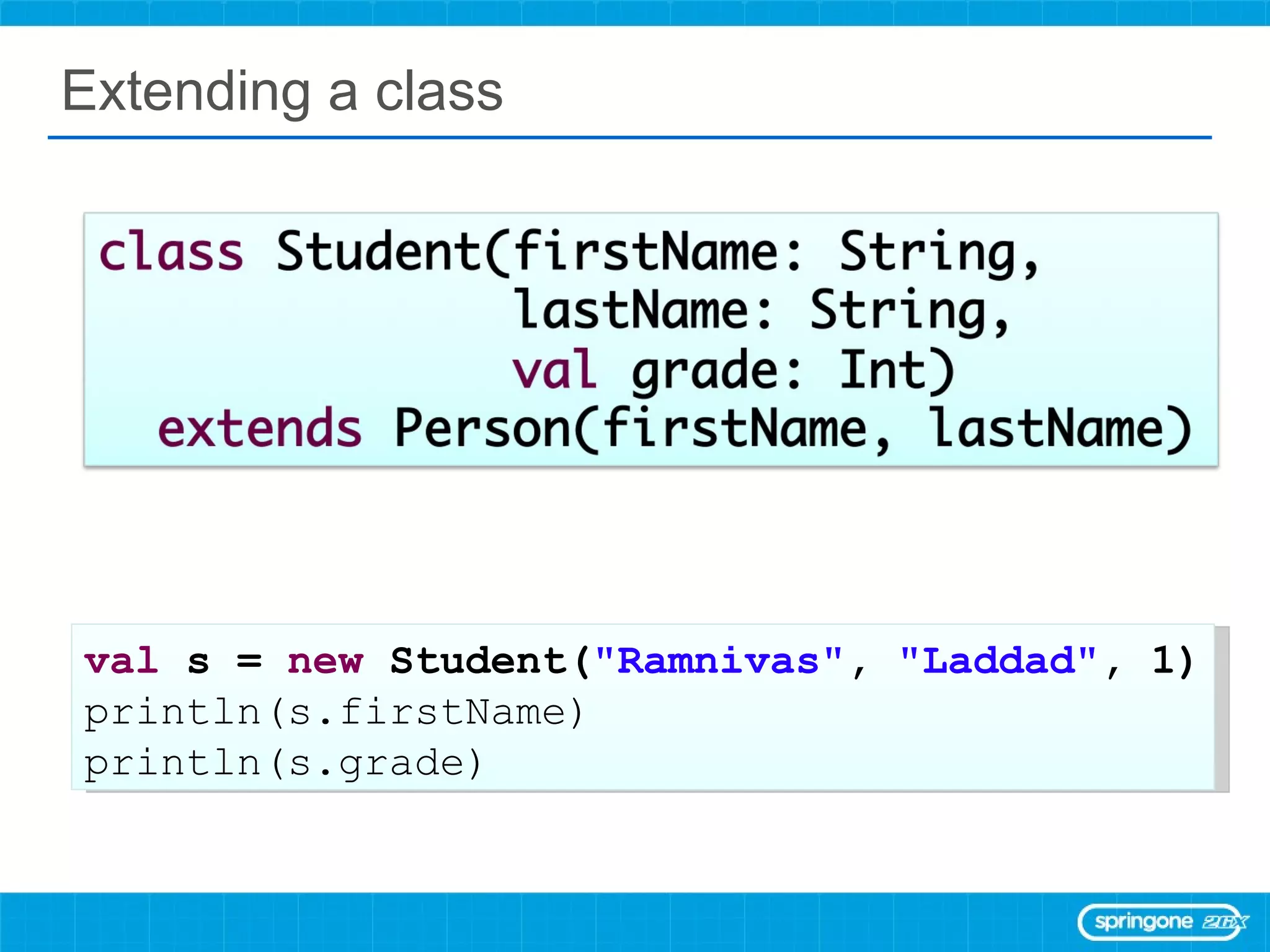
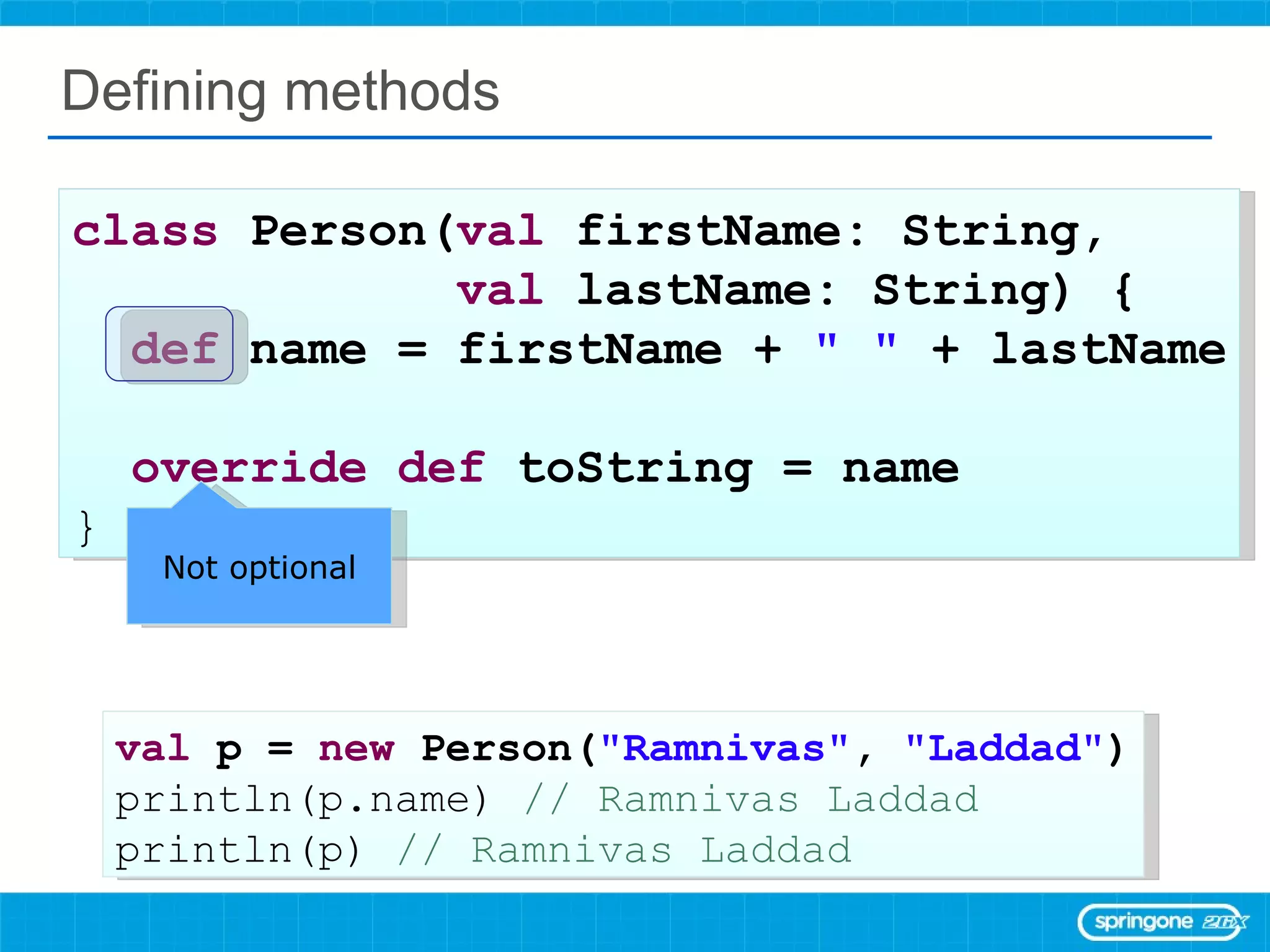
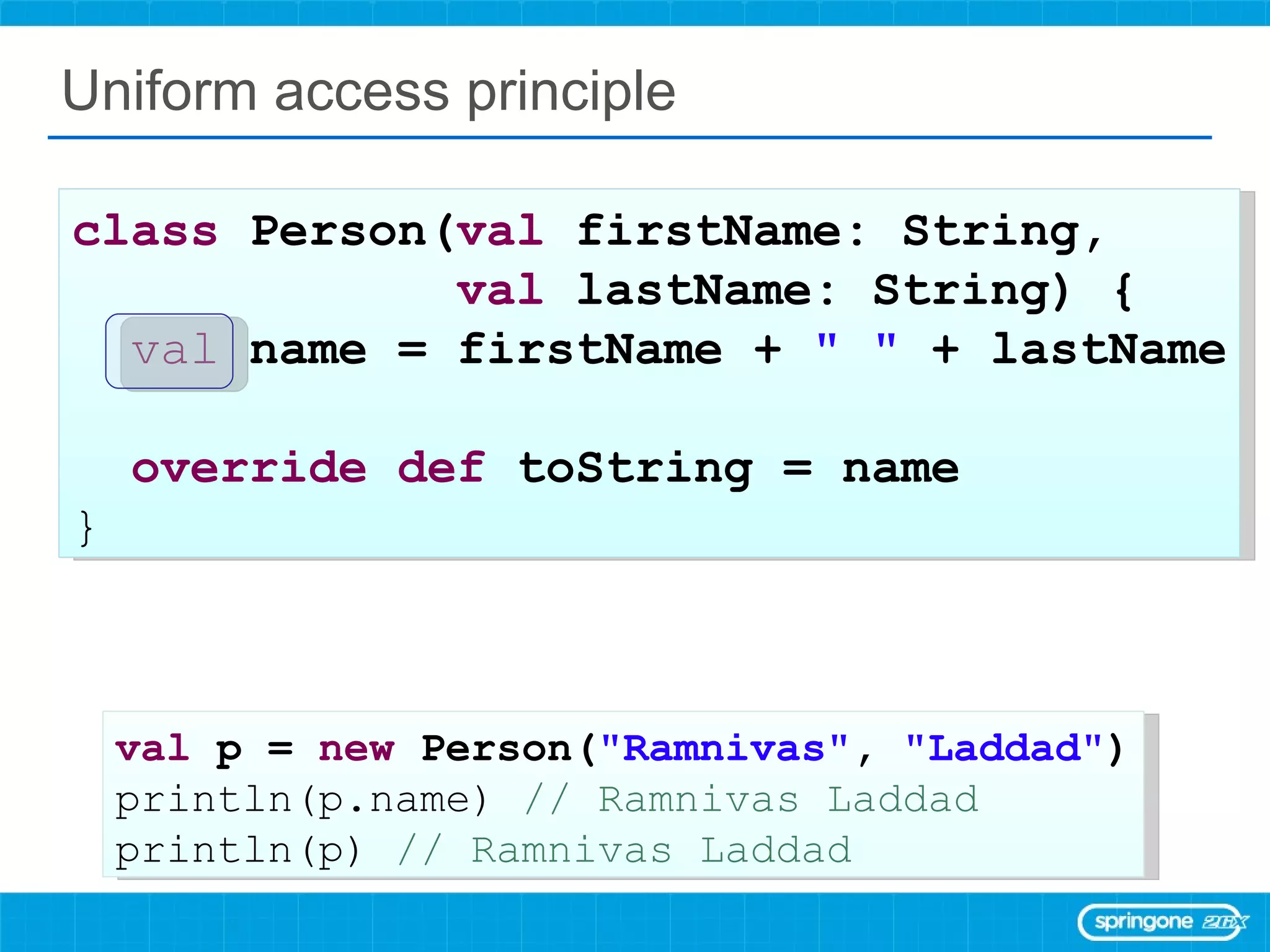
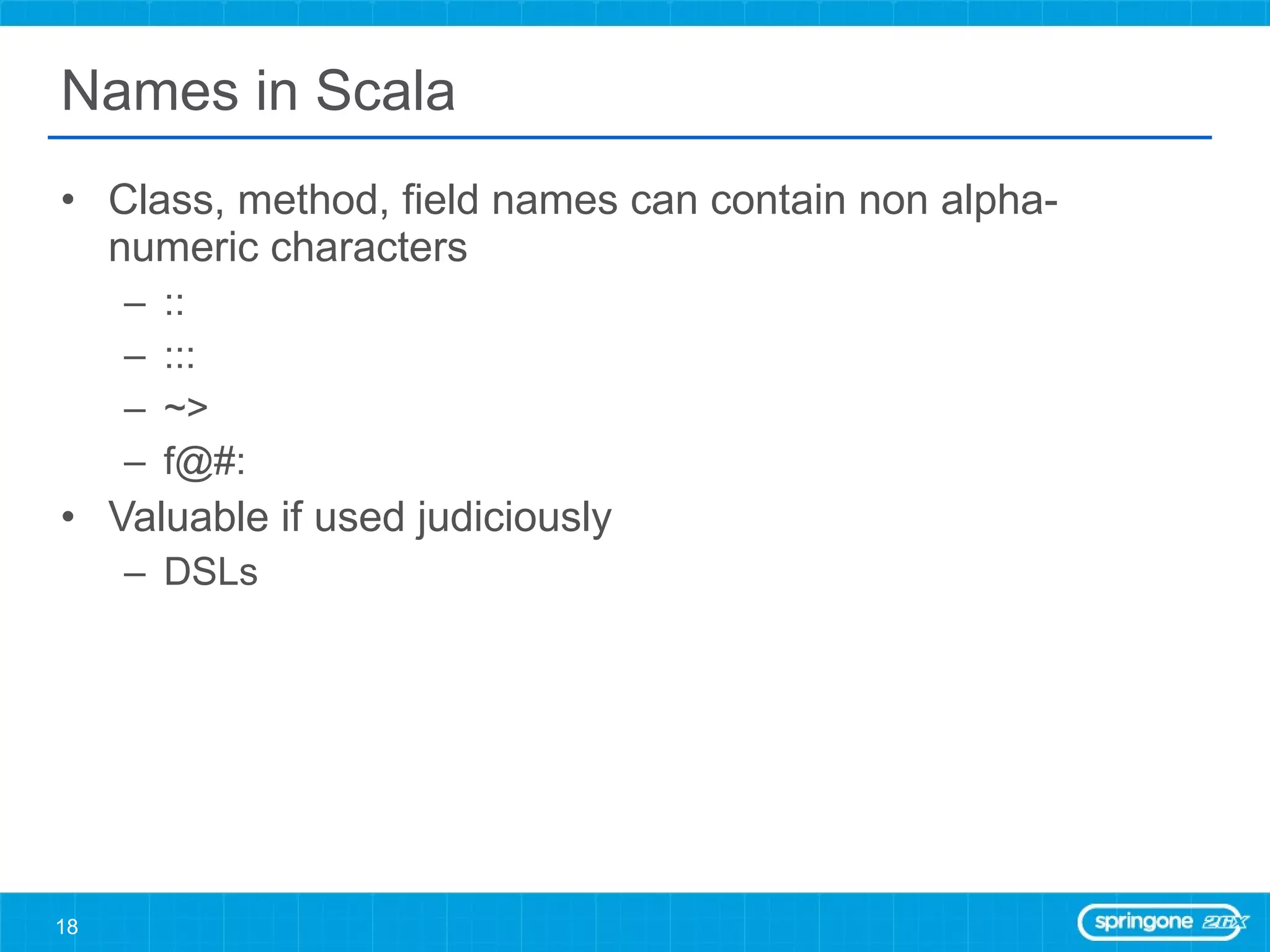
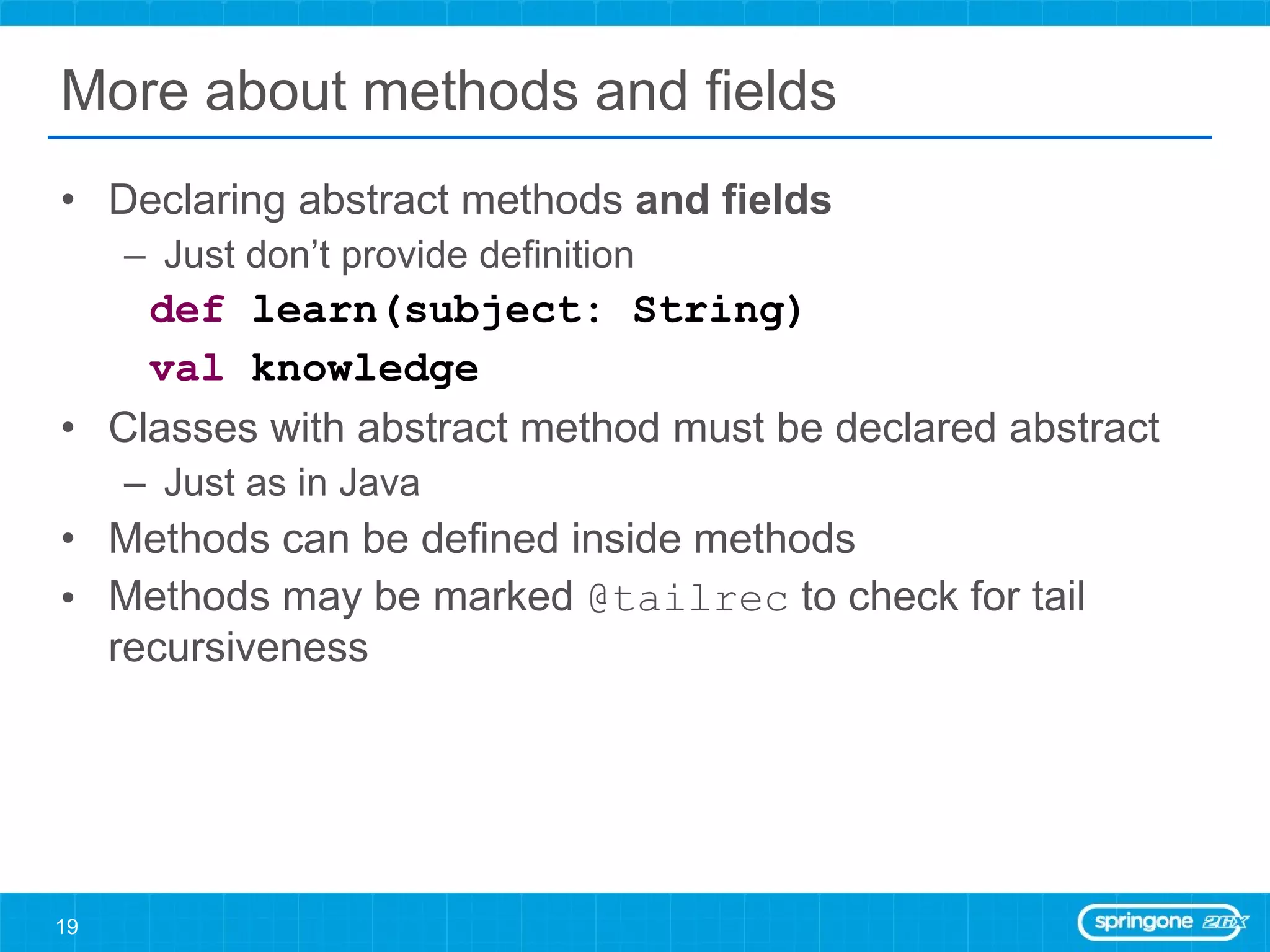
![Finer access control levels Default access level: public Protected: protected Same as Java Private: private private [ this ] Access only from this instance private [package-name] Access from package and its subpackages](https://image.slidesharecdn.com/scala-springone-111031111747-phpapp01/75/Scala-for-Java-Developers-20-2048.jpg)
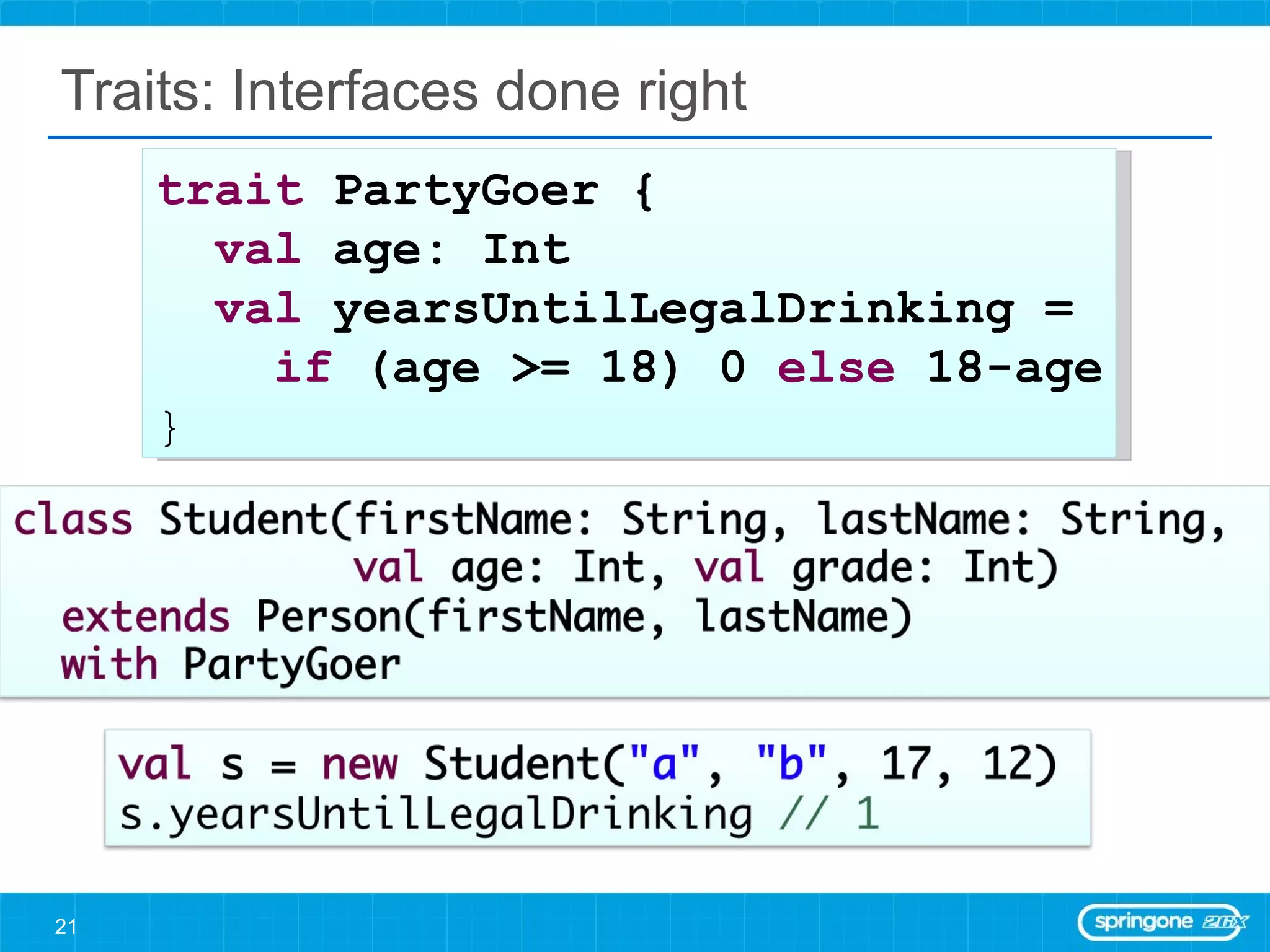
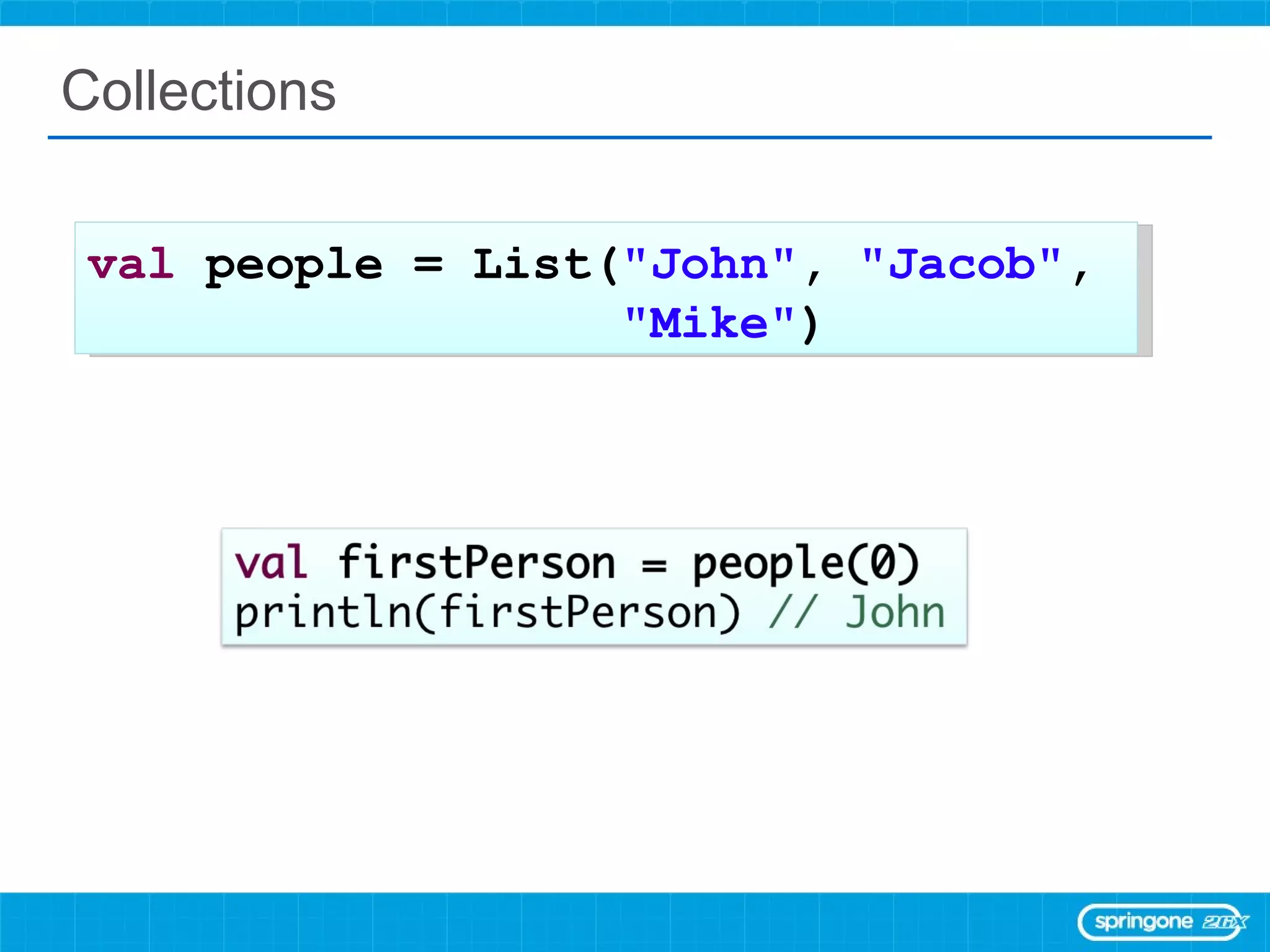
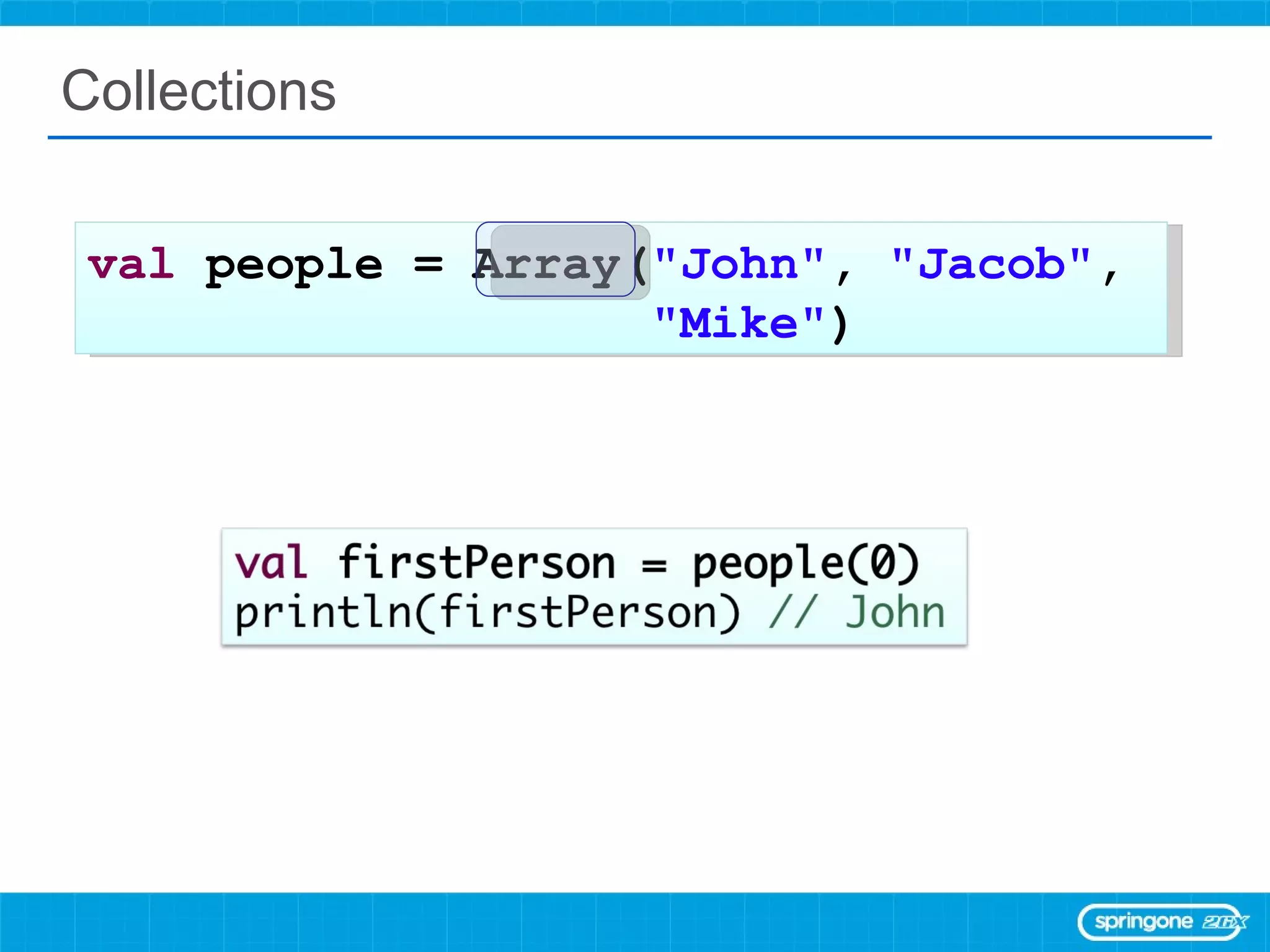
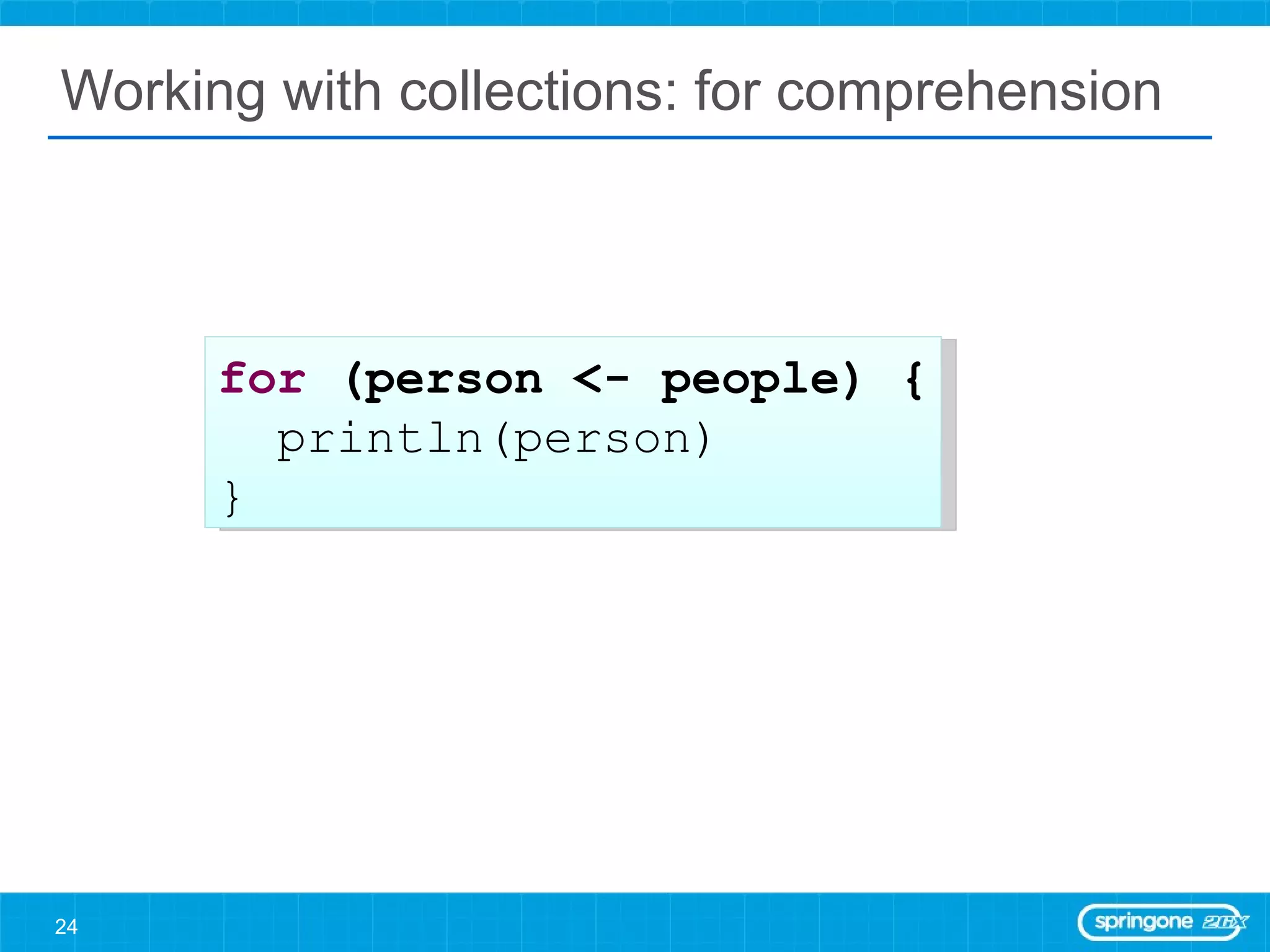
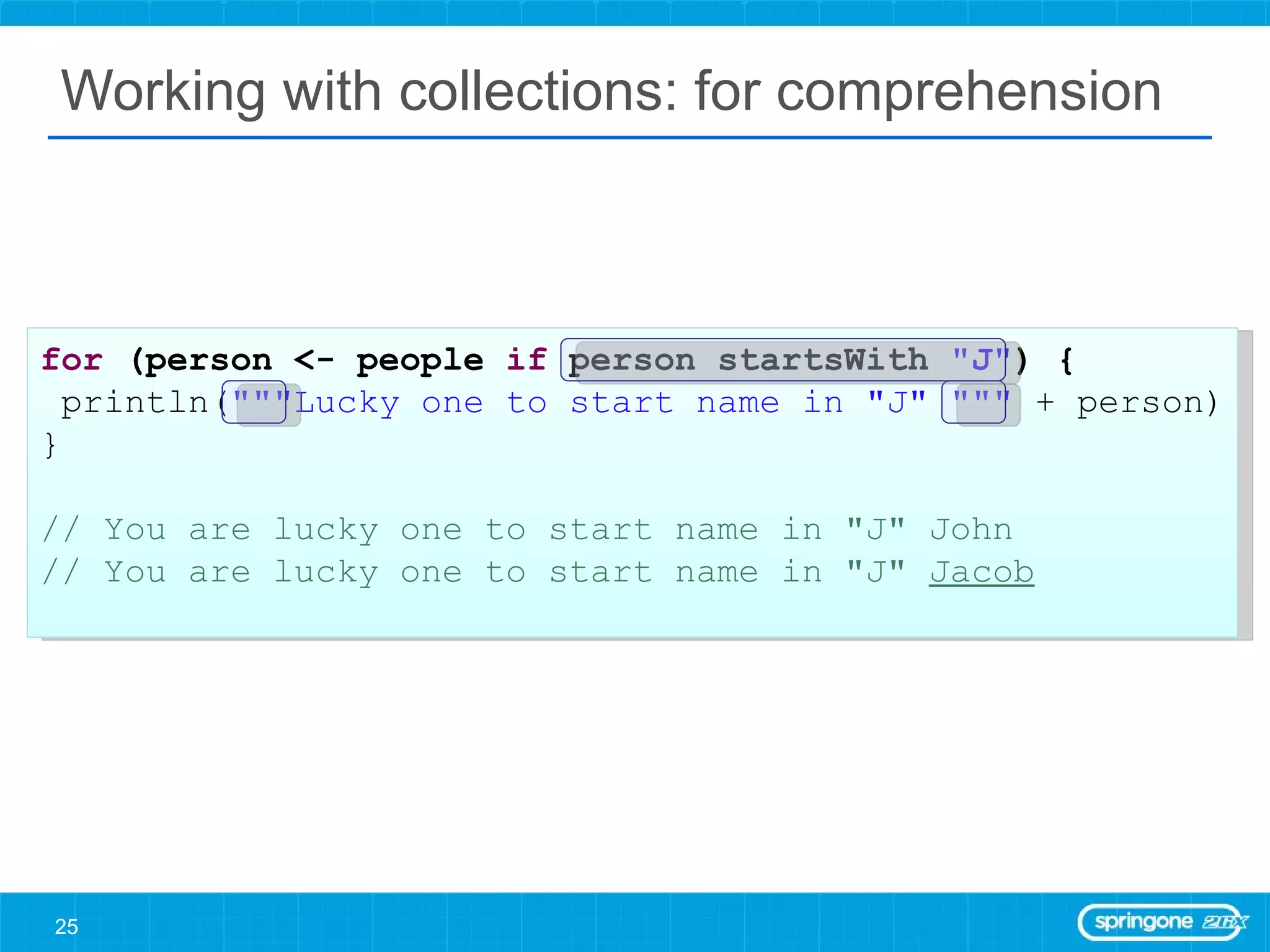
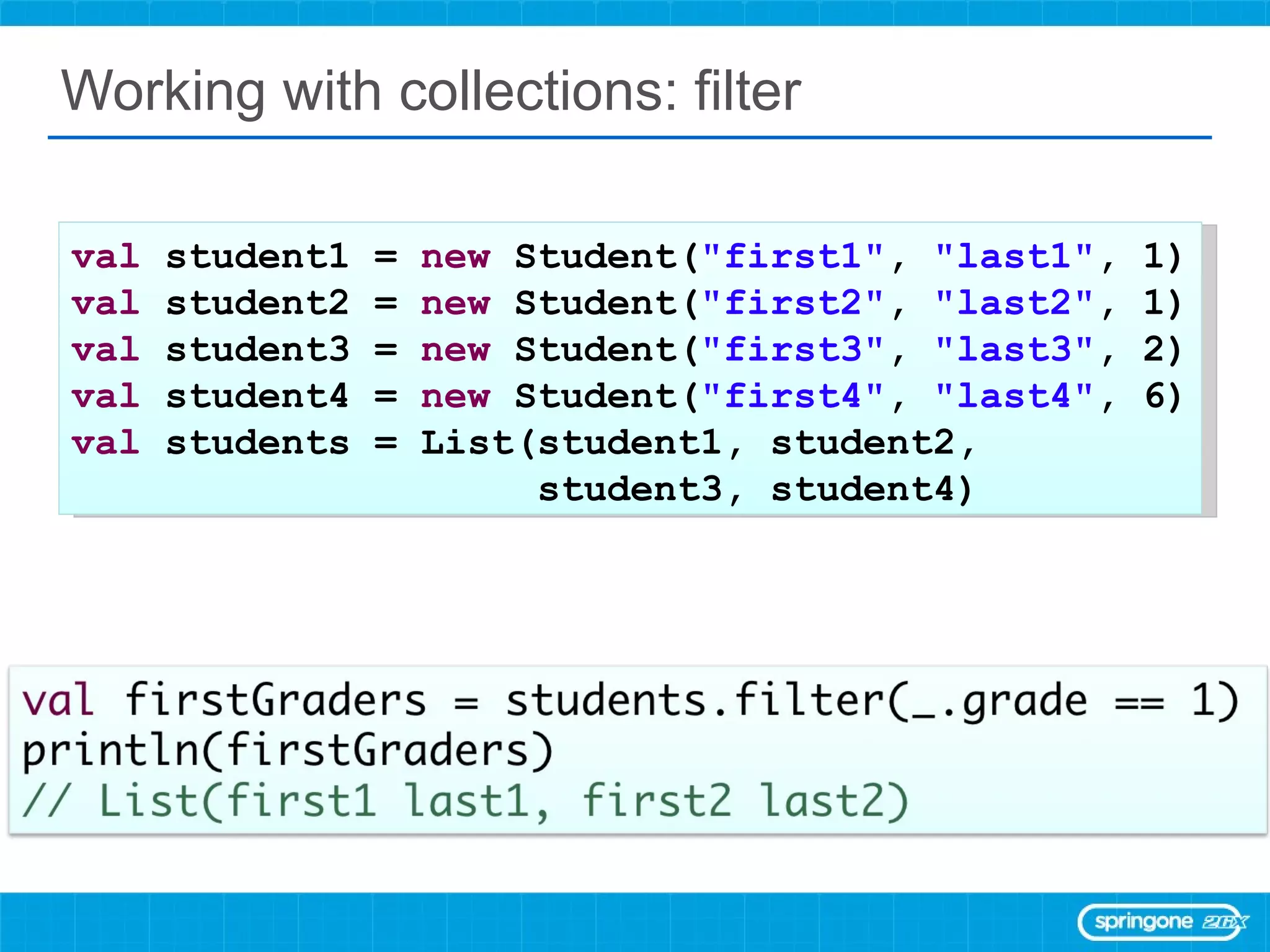
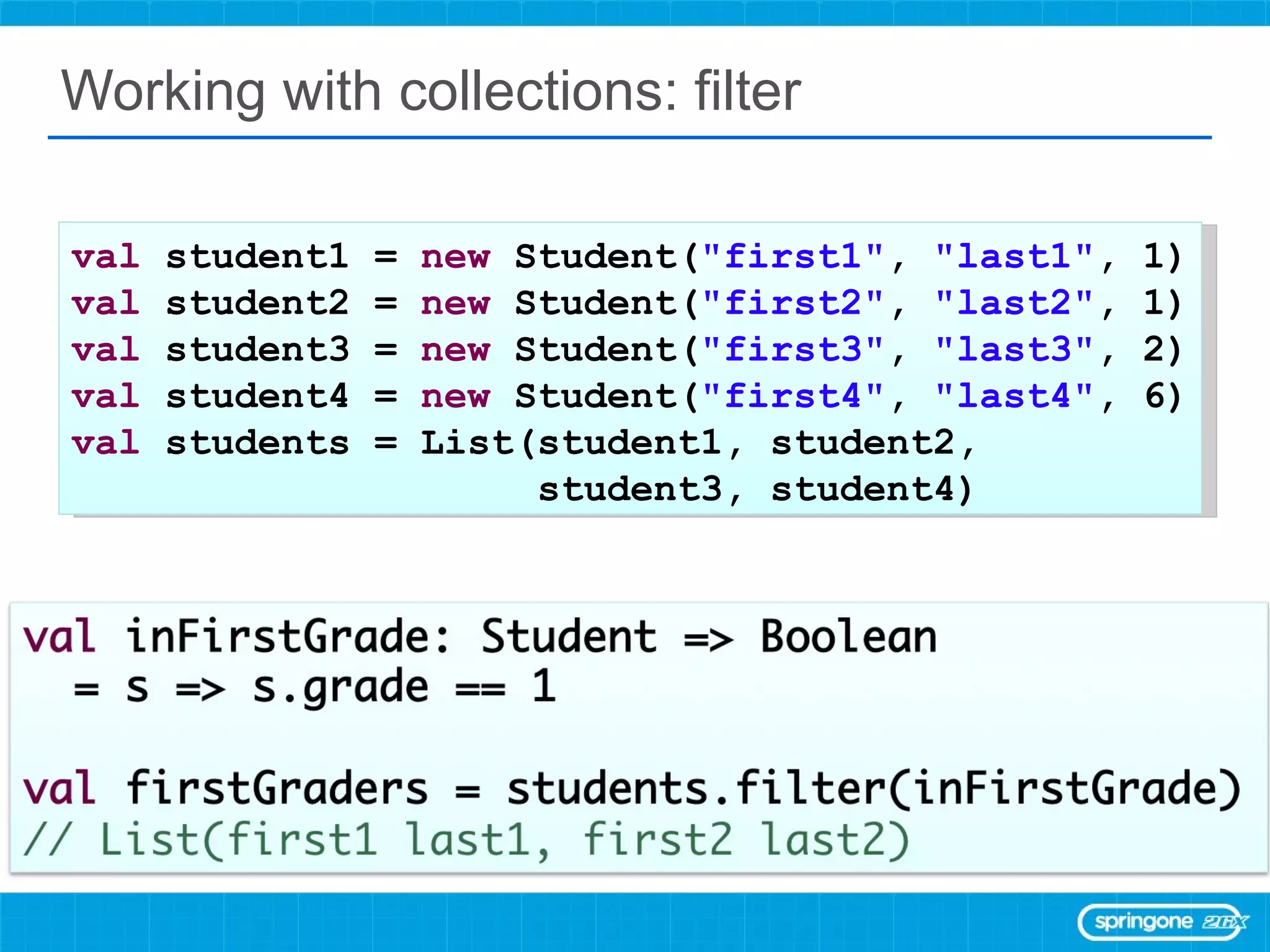
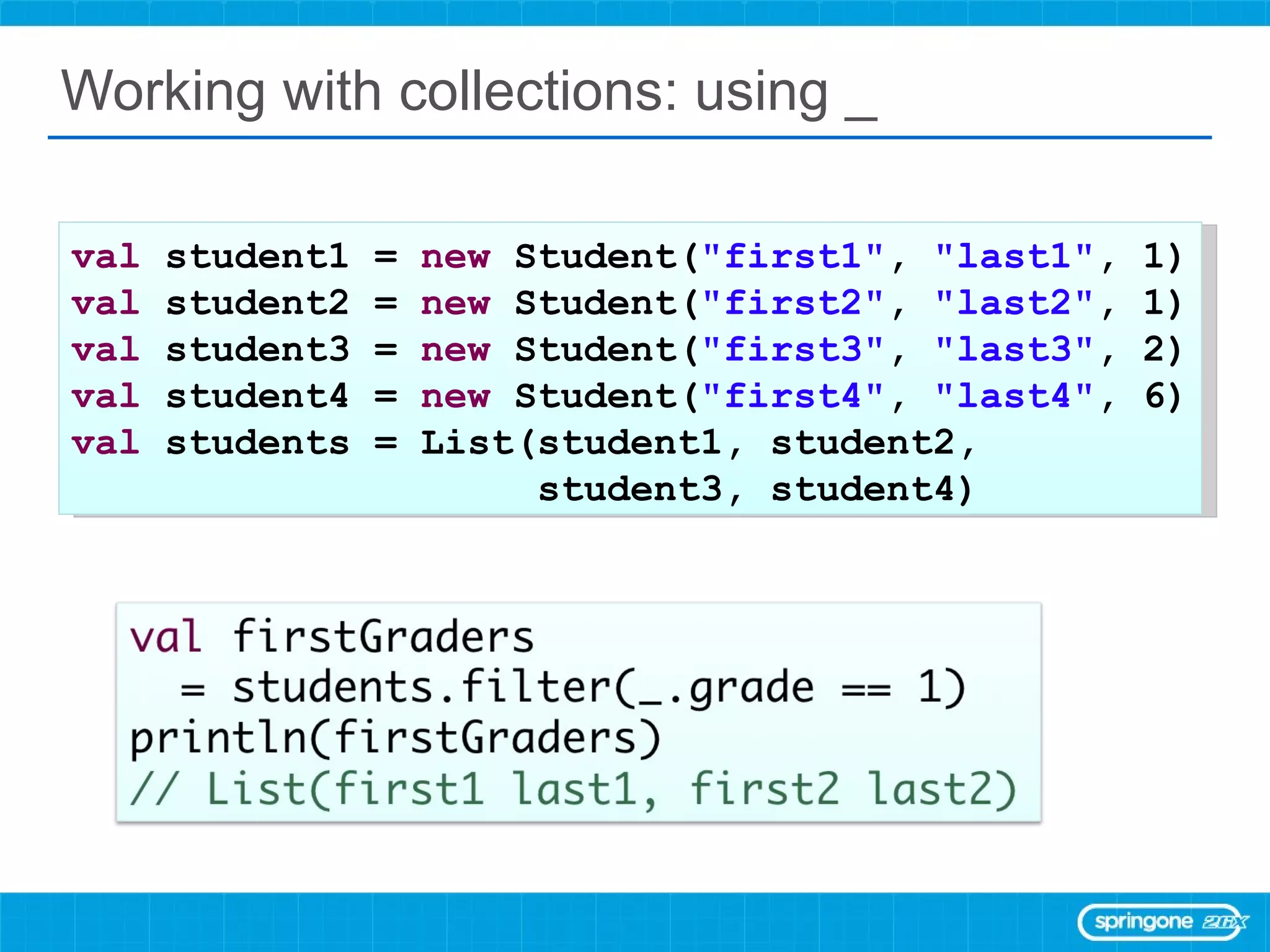
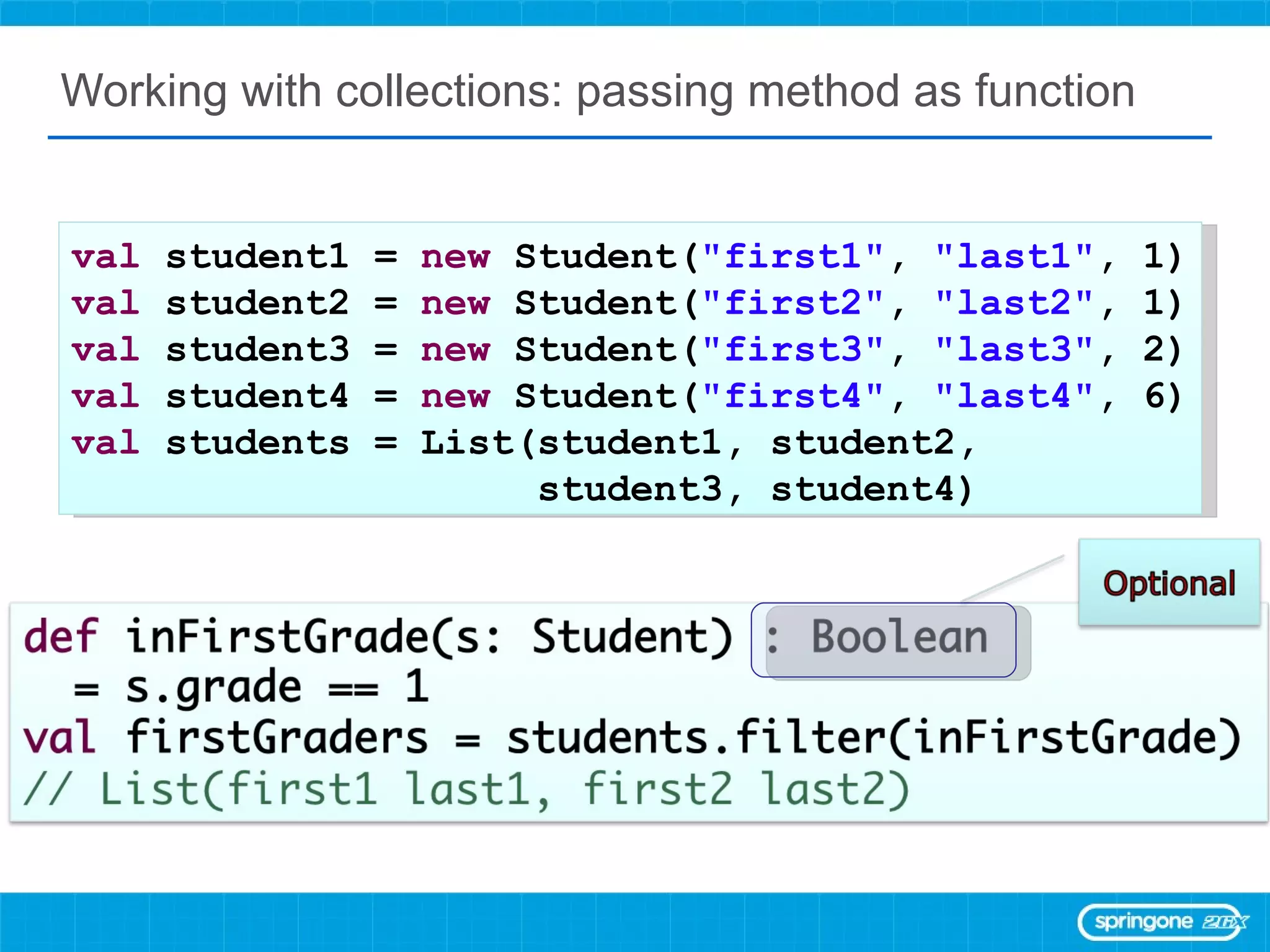
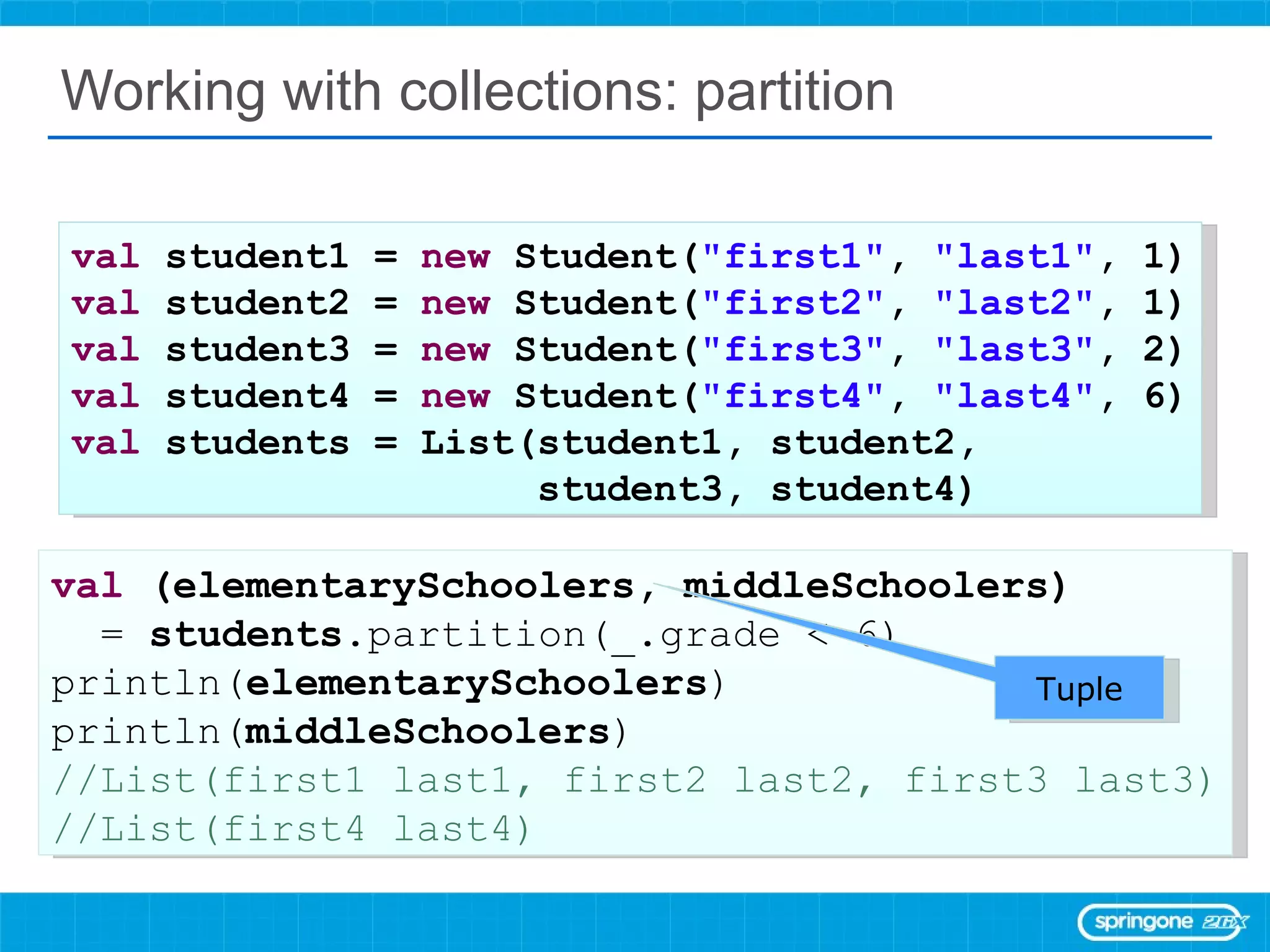
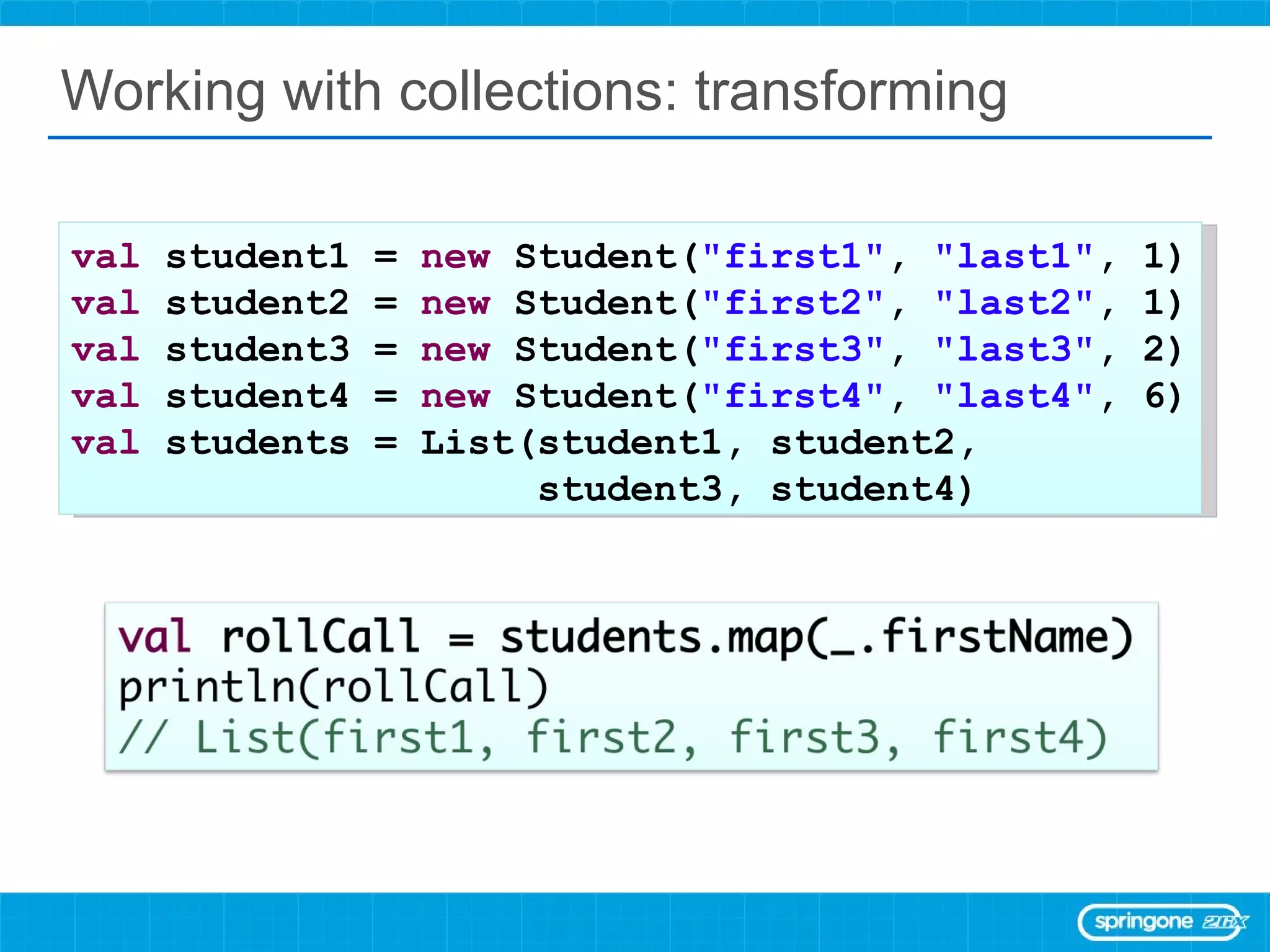
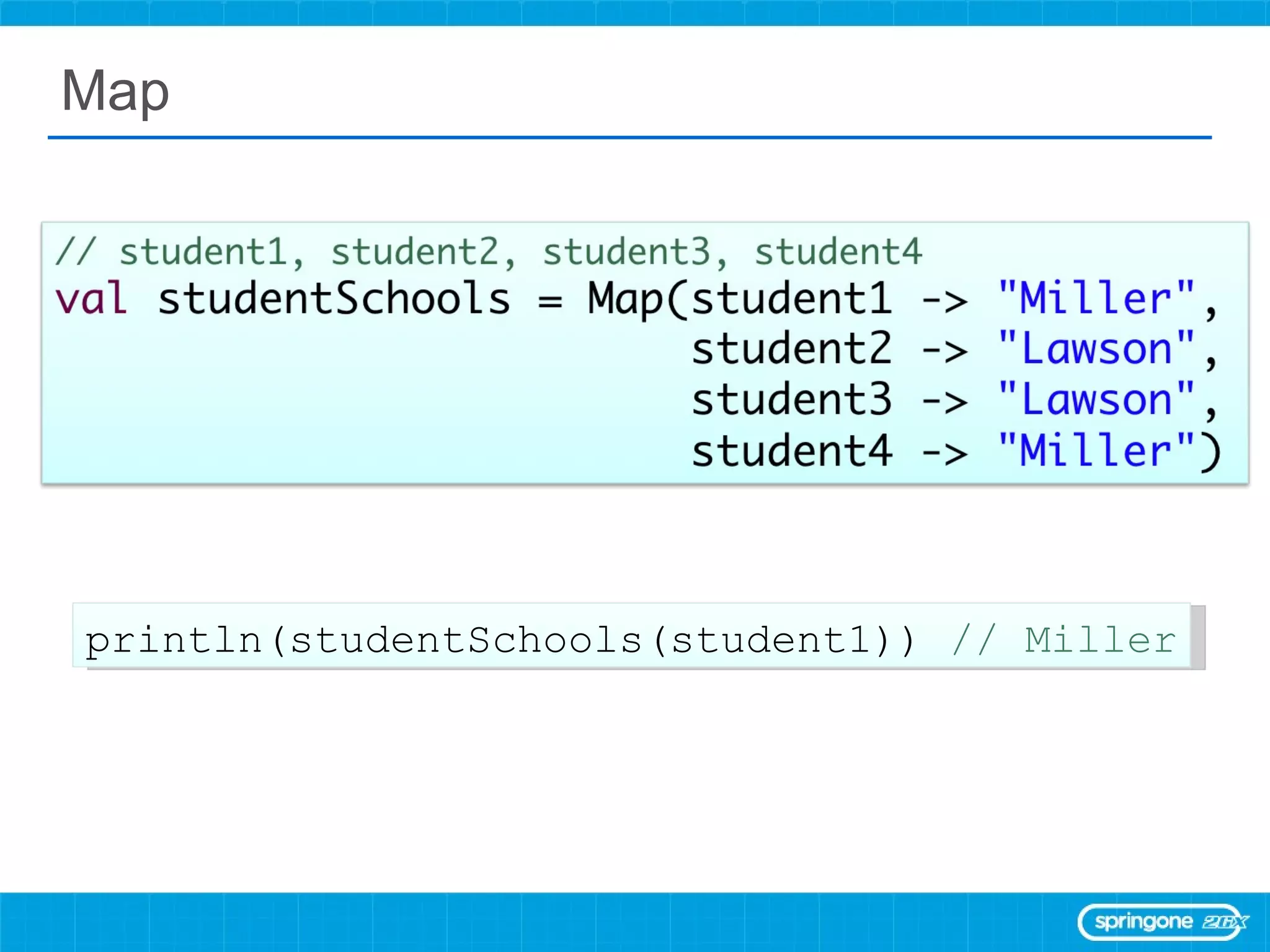
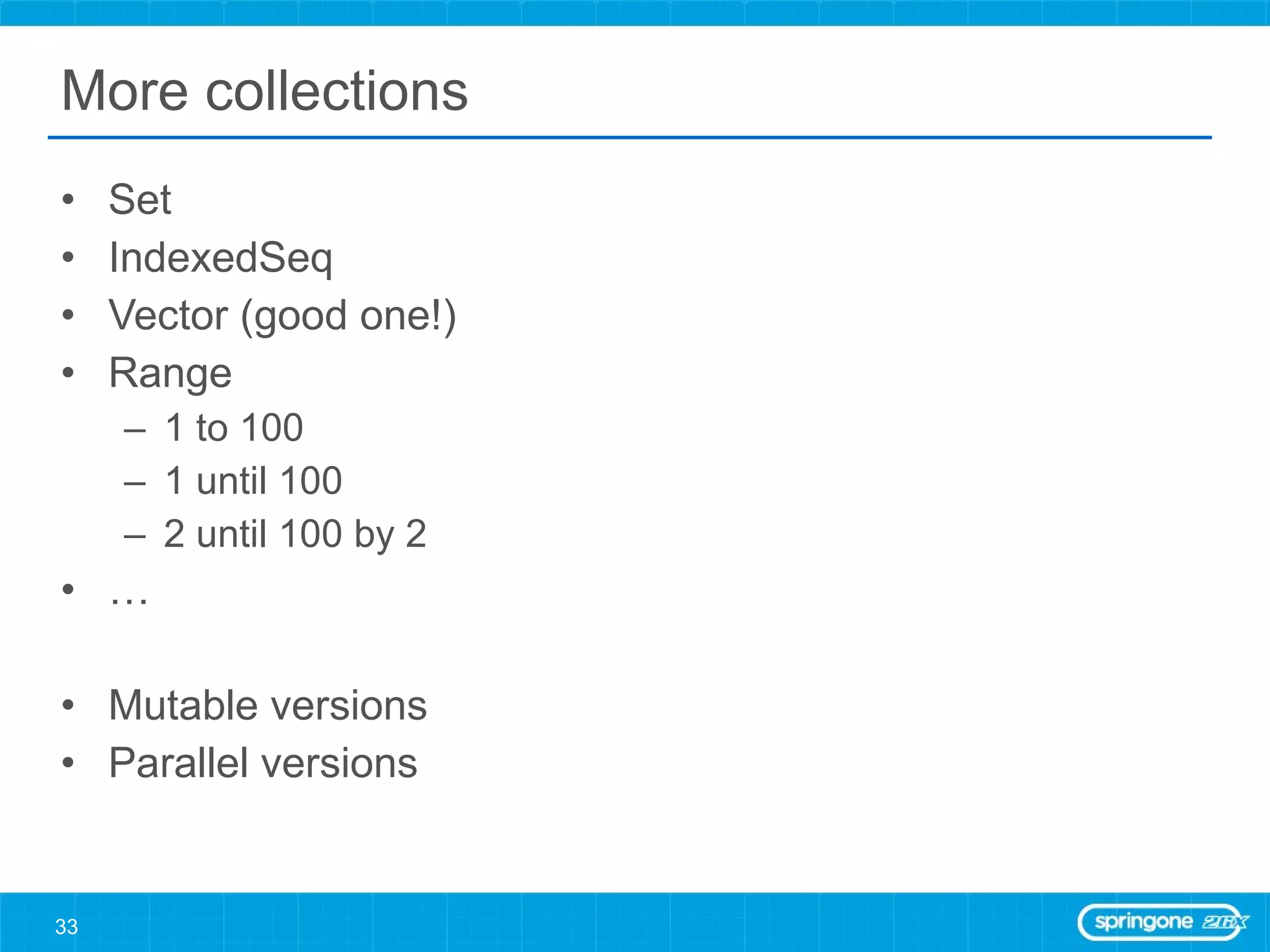
 (ordering: Ordering[T]) : Traversable[T] = if (input.isEmpty) { input } else { val (low, high) = input.tail.partition(ordering.lt(_, input.head)) quicksort(low)(ordering) ++ List(input.head) ++ quicksort(high)(ordering) } println(quicksort(List(1, 3, 4, 5, 1))(Ordering.Int))](https://image.slidesharecdn.com/scala-springone-111031111747-phpapp01/75/Scala-for-Java-Developers-34-2048.jpg)
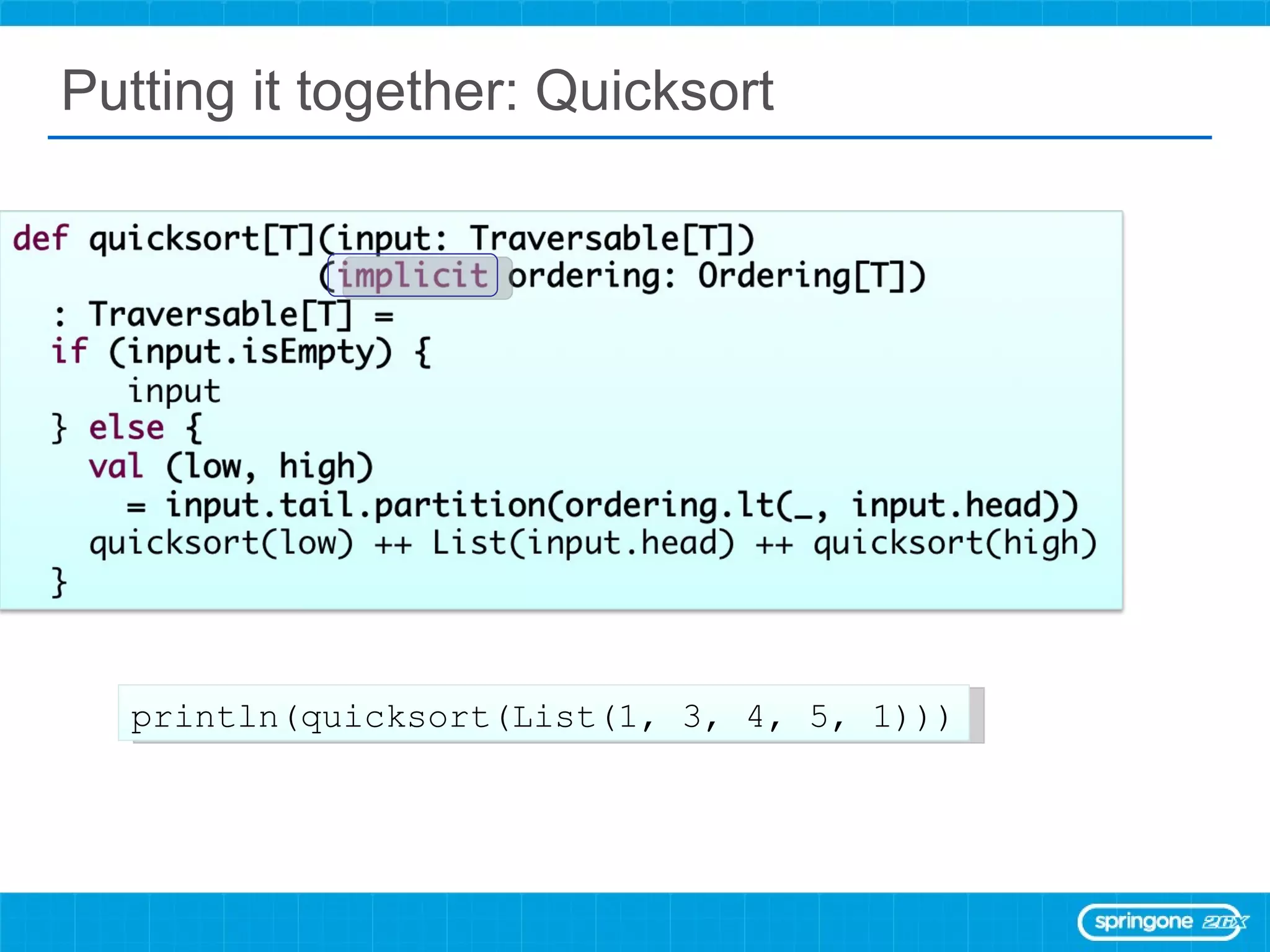
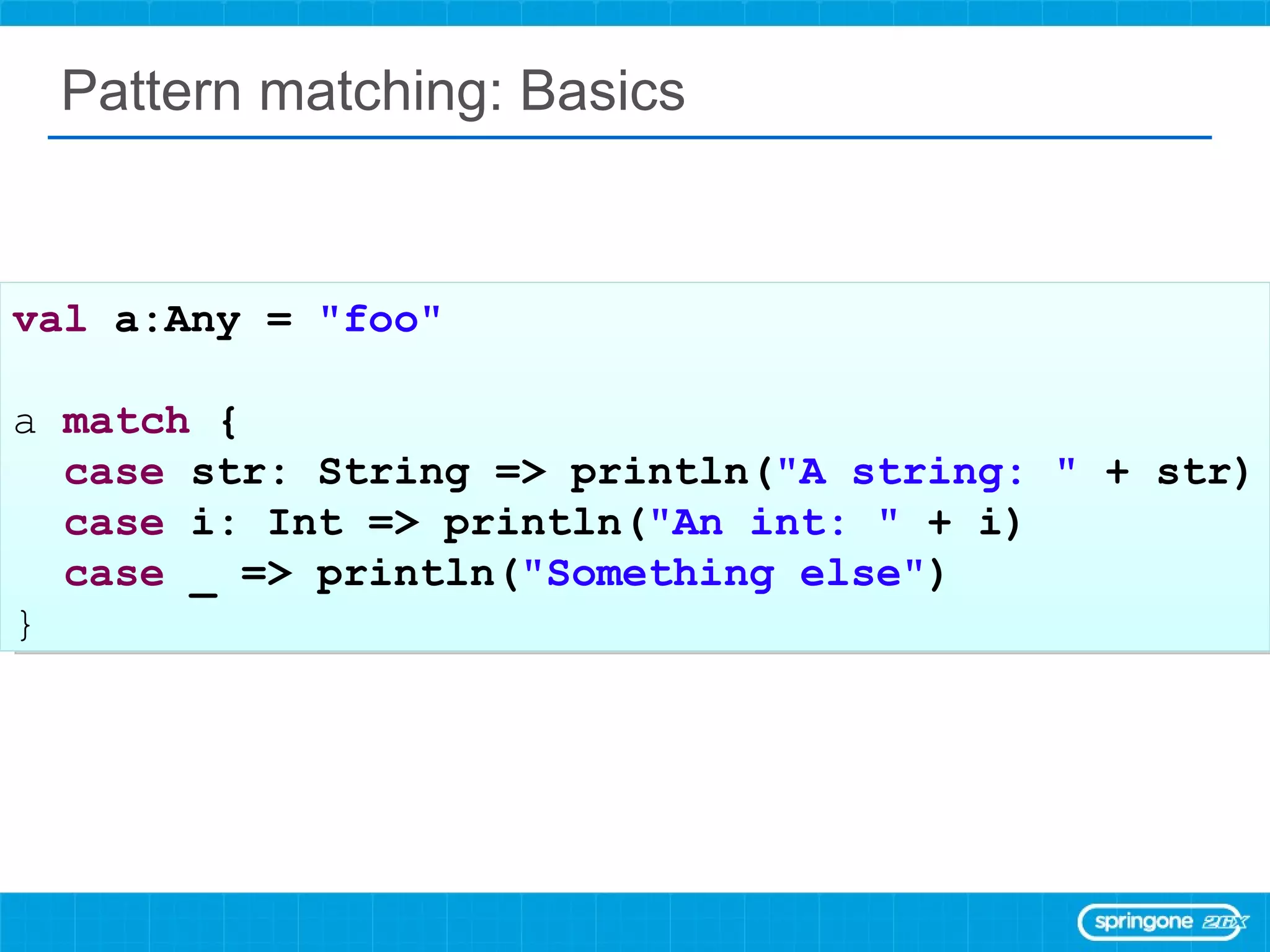
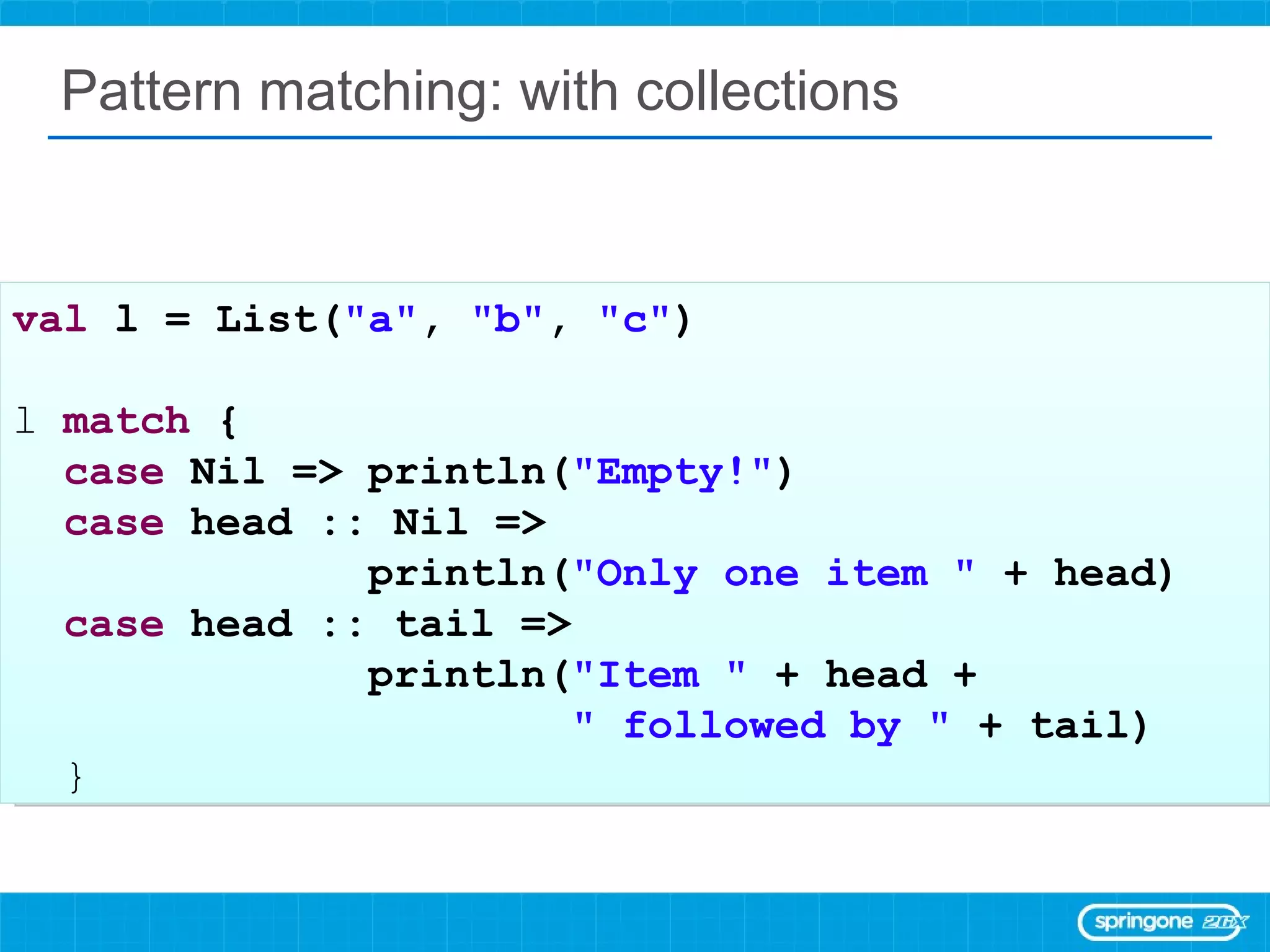
 ( implicit ordering: Ordering[T]) : Traversable[T] = input match { case head :: tail => val (low, high) = tail.partition(ordering.lt(_, head)) quicksort(low) ++ List(head) ++ quicksort(high) case _ => input } println(quicksort(List(1, 3, 4, 5, 1)))](https://image.slidesharecdn.com/scala-springone-111031111747-phpapp01/75/Scala-for-Java-Developers-38-2048.jpg)
: List[A] = lst match { case h1 :: h2 :: tail if (h1 == h2) => destutter(h2 :: tail) case h1 :: h2 :: tail => h1 :: destutter(h2 :: tail) case _ => lst } // destutter(List(1,1,1,1,1,1)) => List(1) // destutter(List(1,1,4,3,3,2)) => List(1,4,3,2) // destutter(List() )=> List()](https://image.slidesharecdn.com/scala-springone-111031111747-phpapp01/75/Scala-for-Java-Developers-39-2048.jpg)
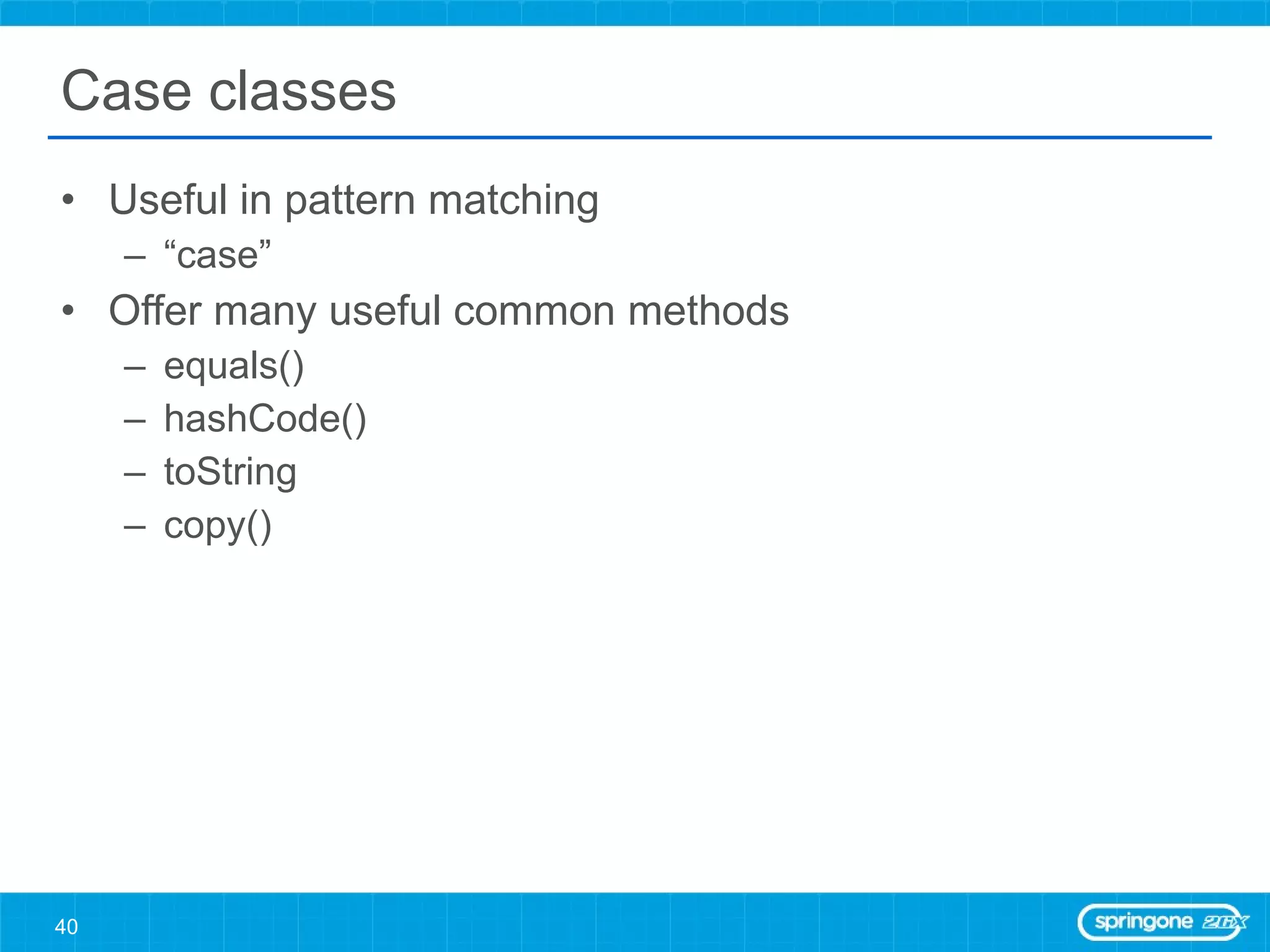
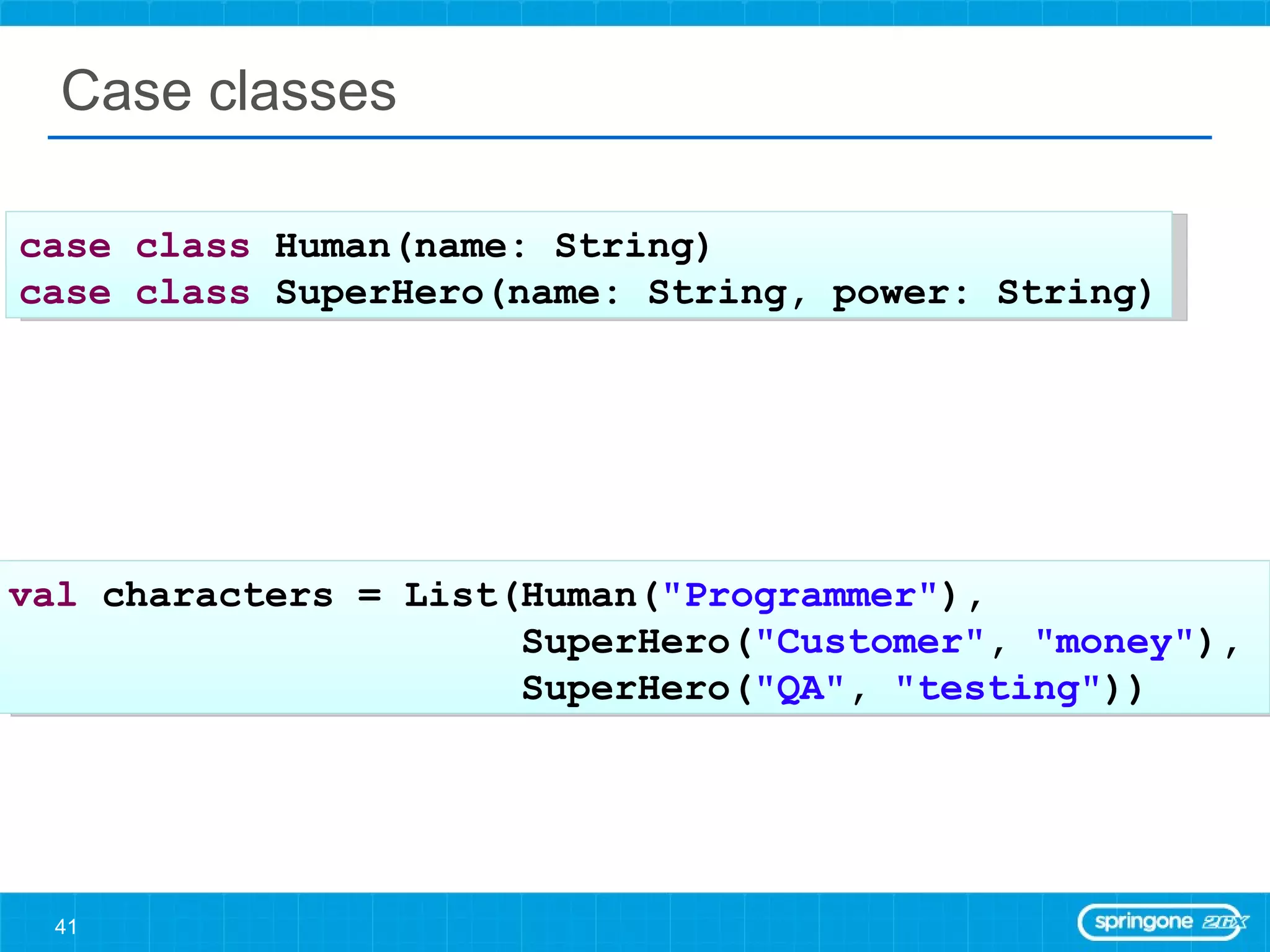
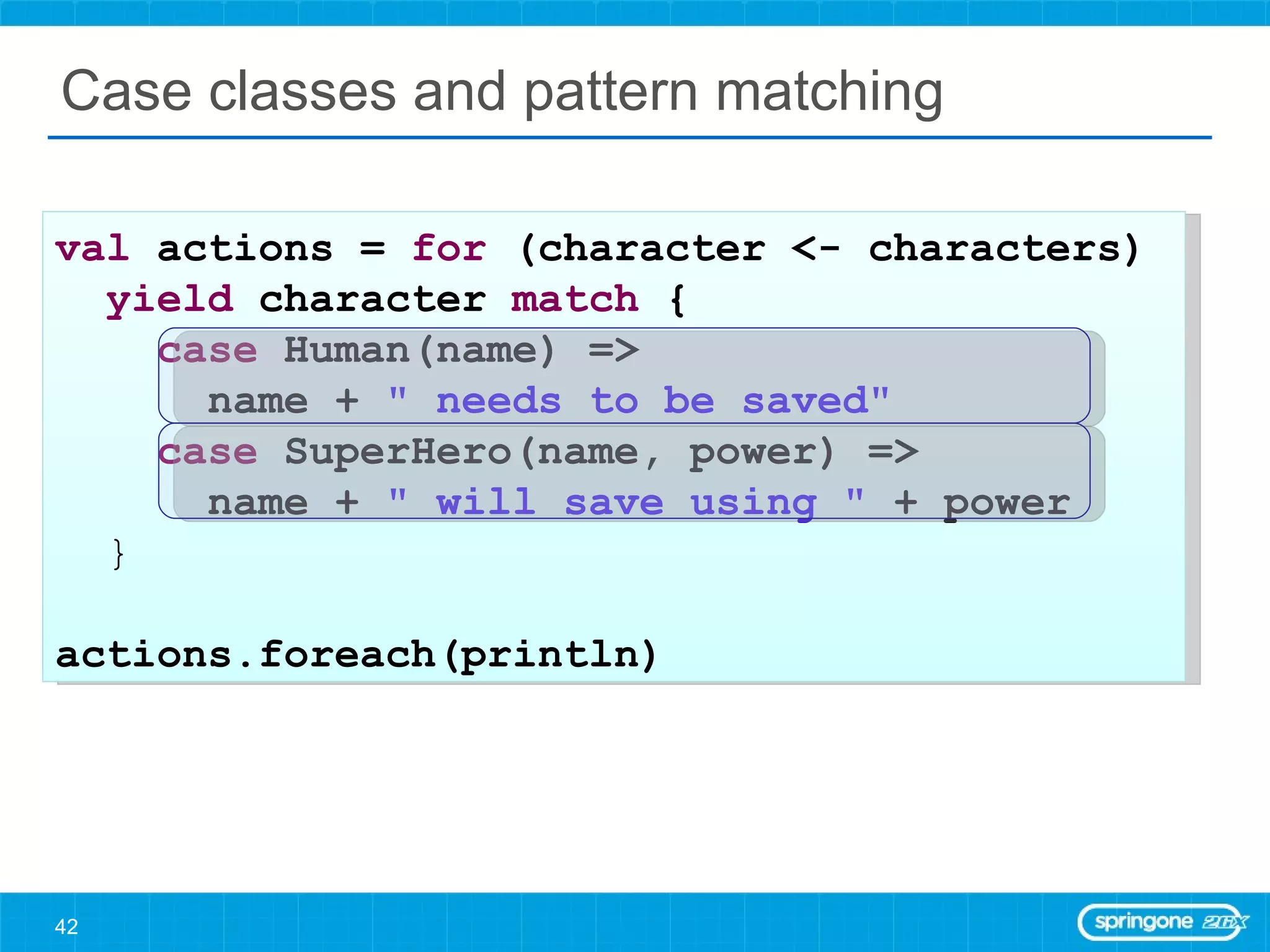
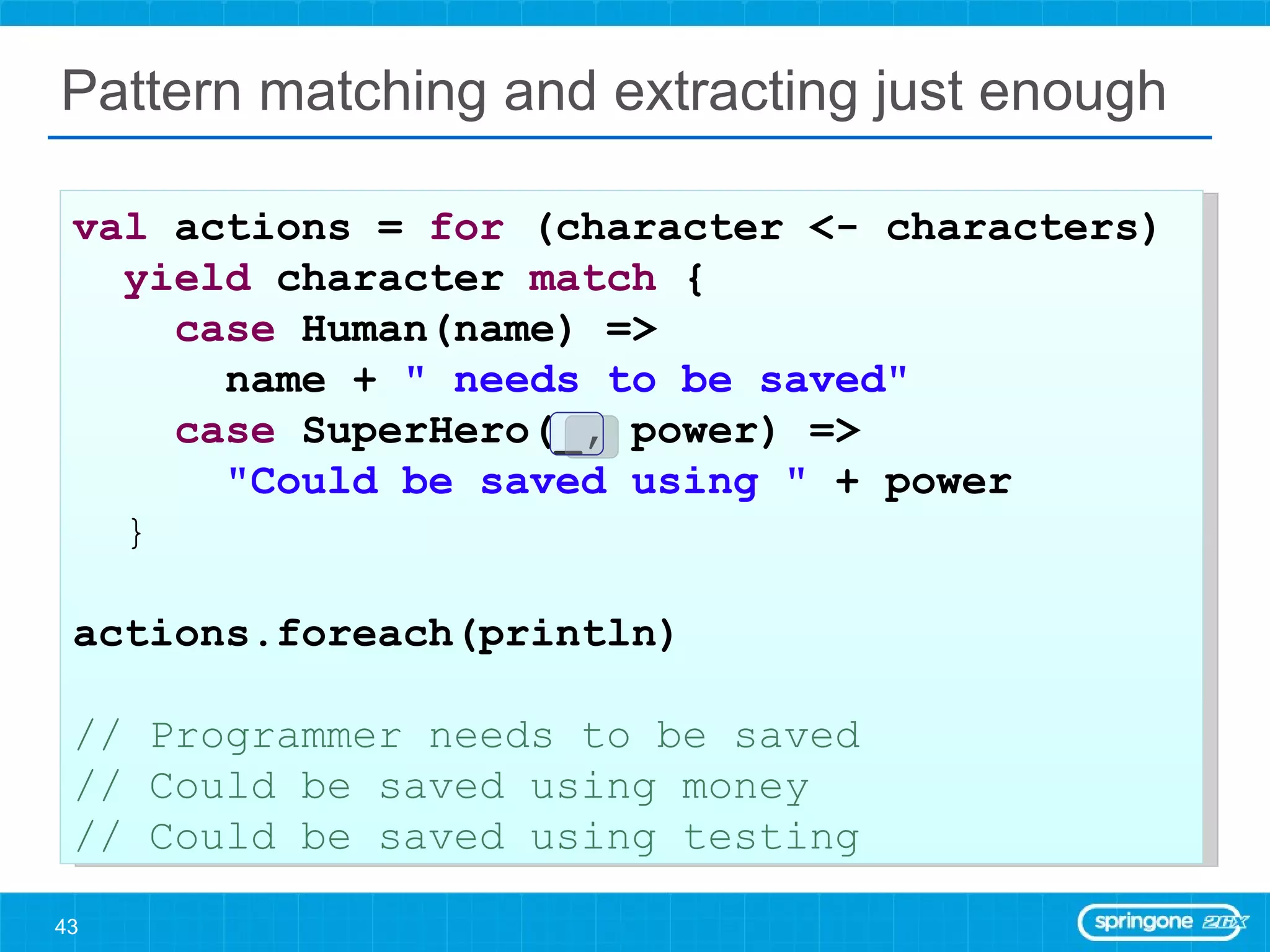
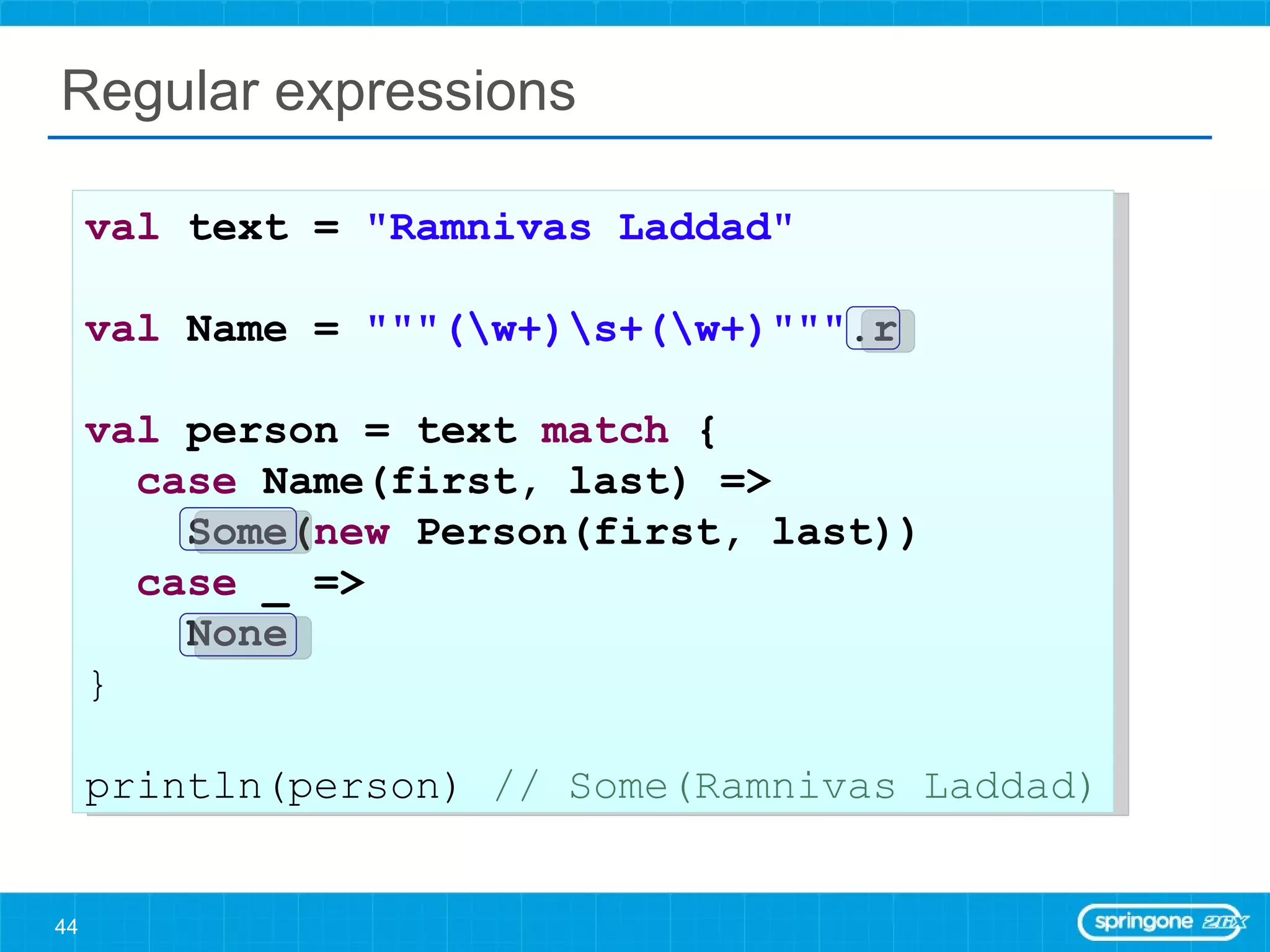
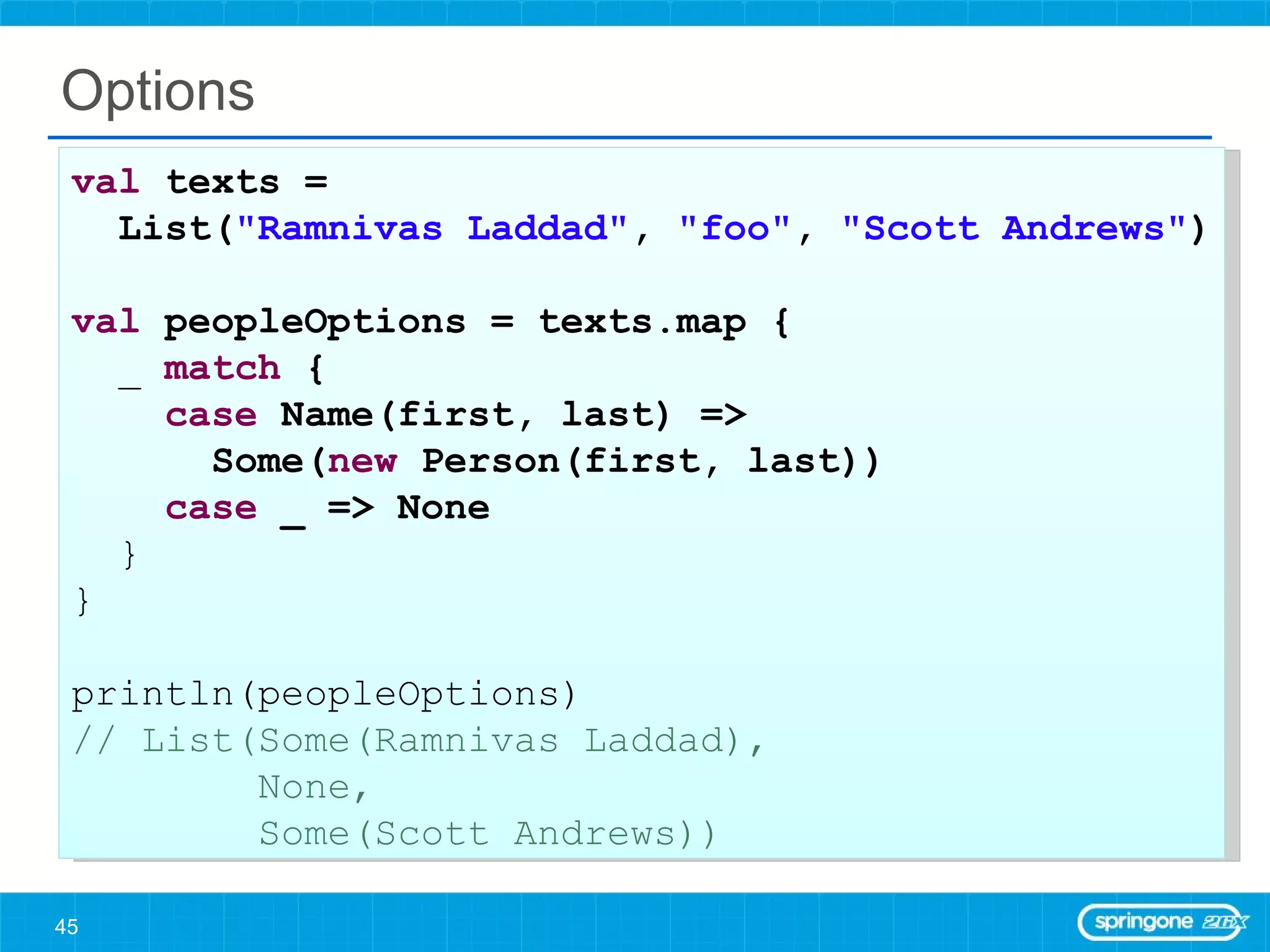
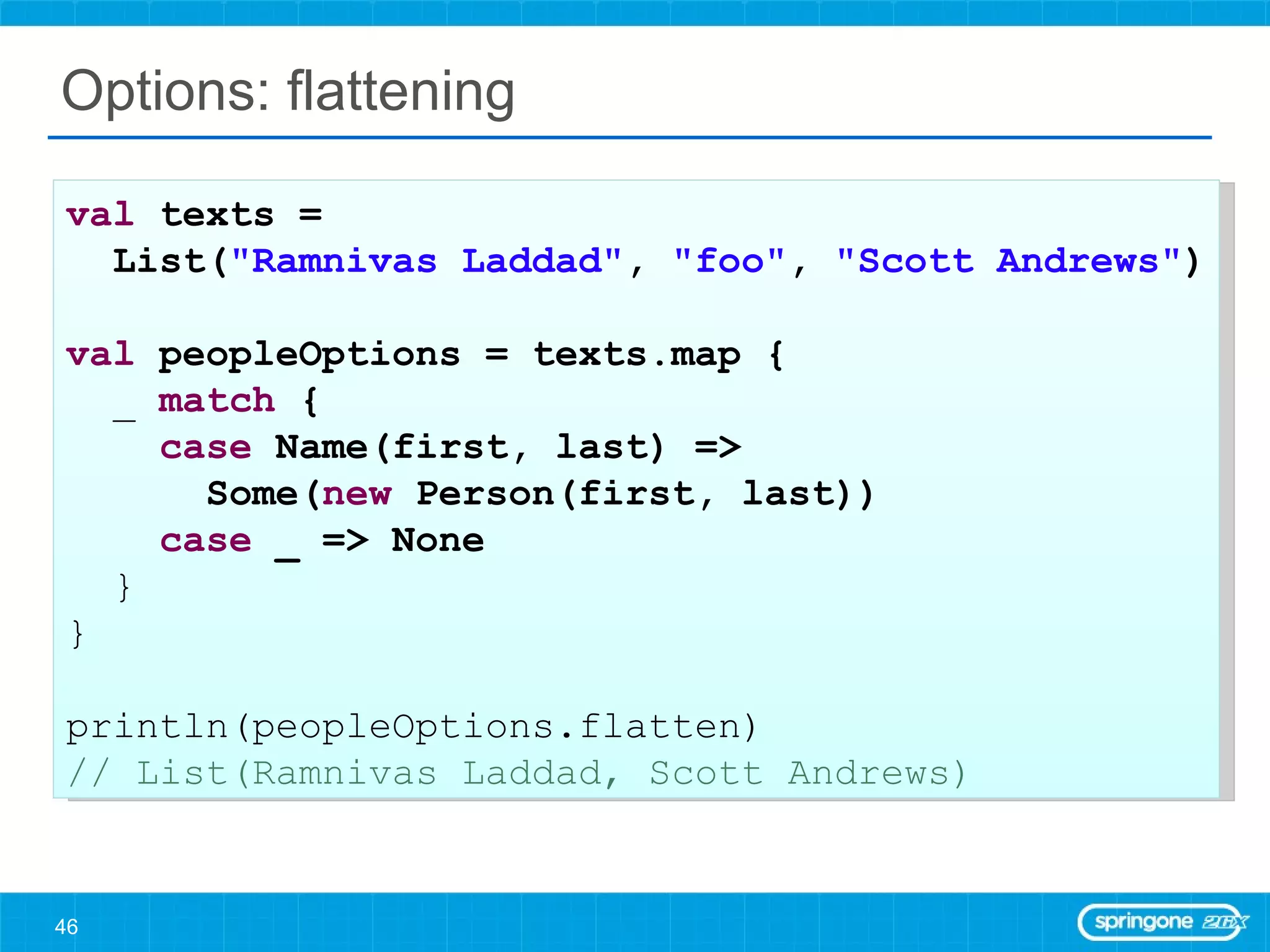
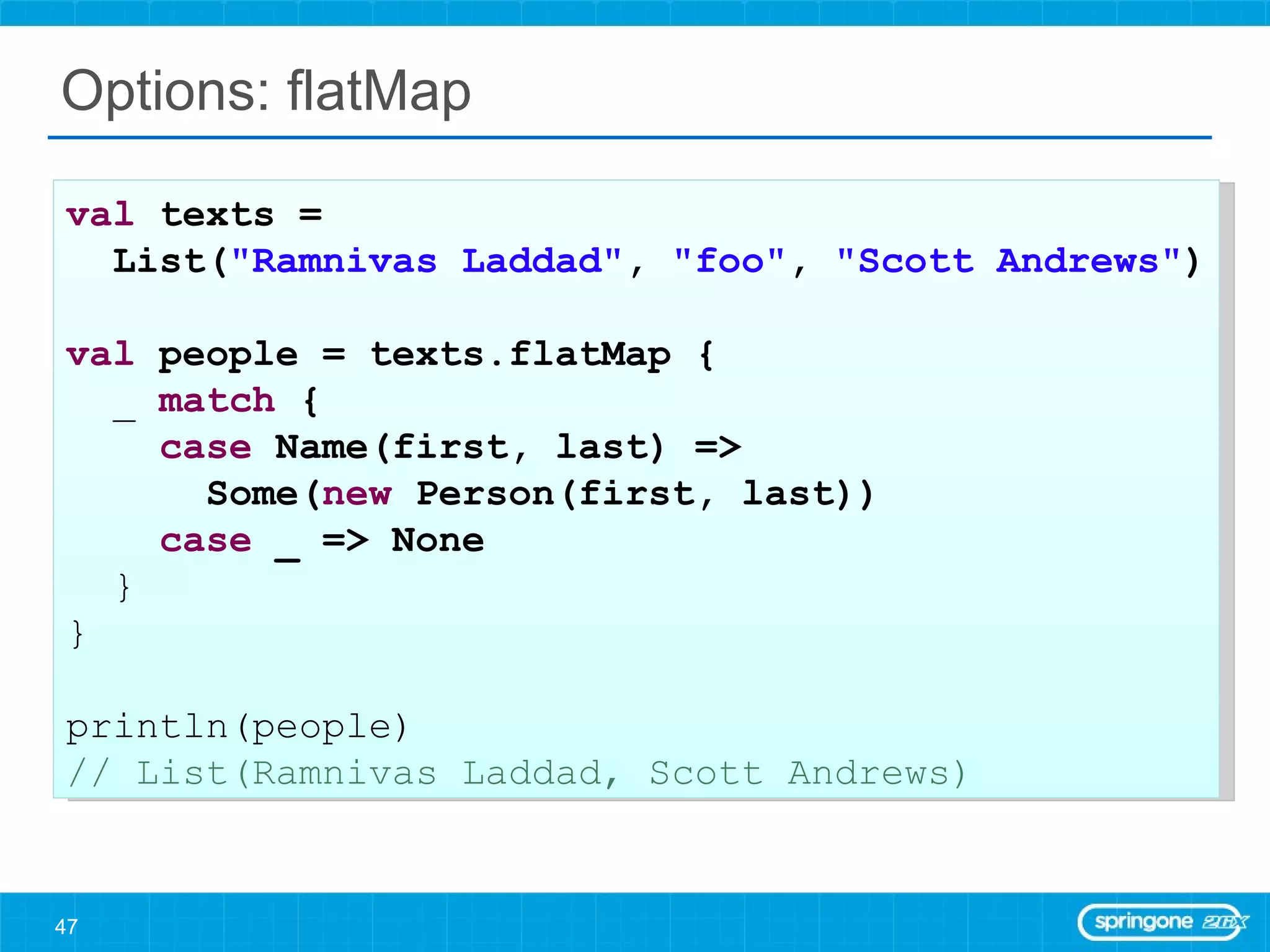
(thunk: => T) = { def retry(thunk: => T, attempt: Int): T = { try { thunk } catch { case ex if (attempt < maxRetry) => retry(thunk, attempt + 1) } } retry(thunk, 0) } Thunk](https://image.slidesharecdn.com/scala-springone-111031111747-phpapp01/75/Scala-for-Java-Developers-48-2048.jpg)
![Caching using Scala def getQuoteGraph(stock: Stock, days: Int) : Array[Byte] = { cached( "chart" , stock.ticker + ":" + days) { ... Expensive calculation } }](https://image.slidesharecdn.com/scala-springone-111031111747-phpapp01/75/Scala-for-Java-Developers-49-2048.jpg)
 (thunk: => T): T = { val cache = ... if (cache.containsKey(key)) { cache.get(key).asInstanceOf[T] } else { val thunkVal: T = thunk cache.put(key, thunkVal) thunkVal } } }](https://image.slidesharecdn.com/scala-springone-111031111747-phpapp01/75/Scala-for-Java-Developers-50-2048.jpg)
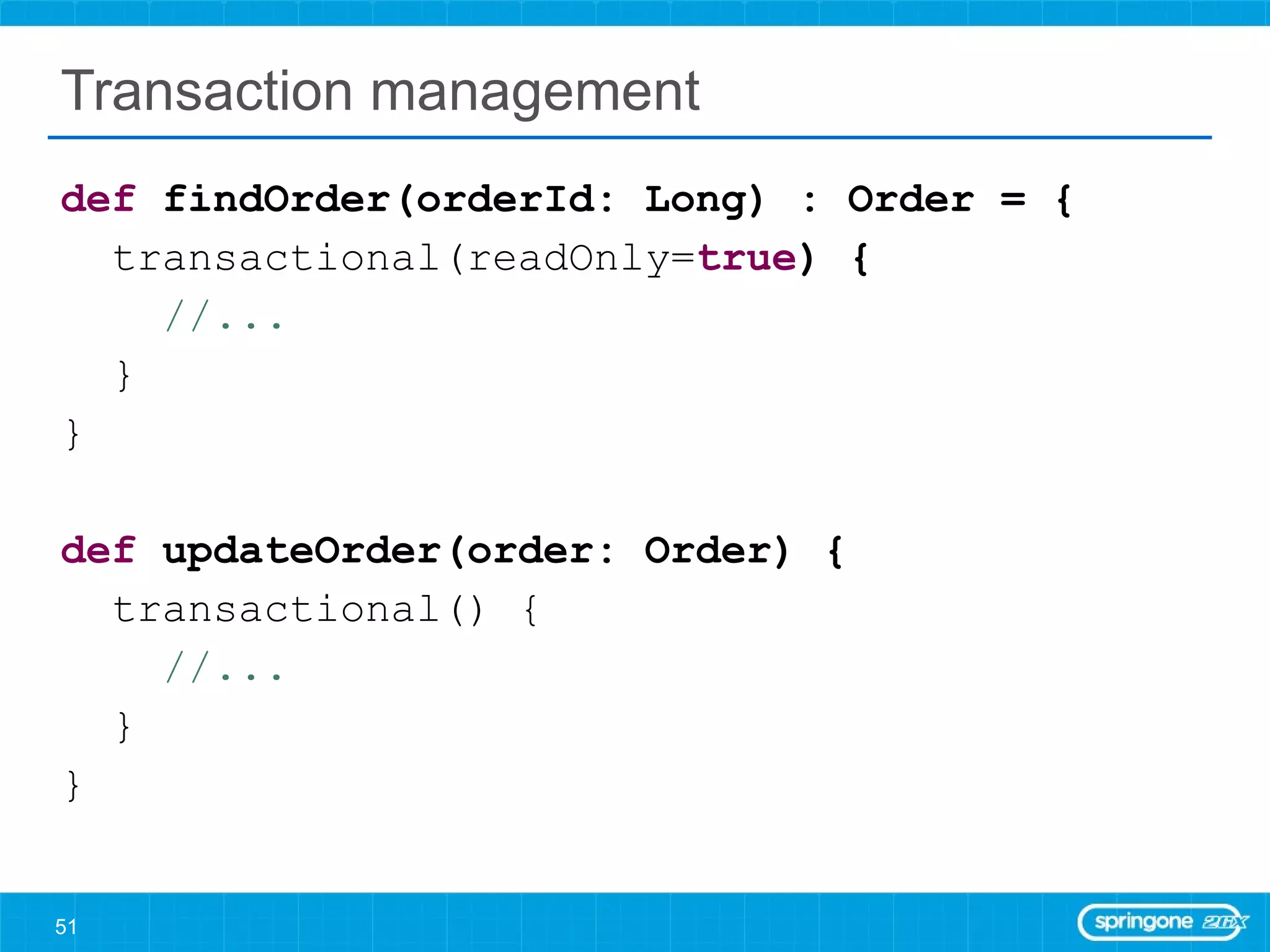
, noRollbackFor: List[Throwable] = List()) (thunk: => T) : T](https://image.slidesharecdn.com/scala-springone-111031111747-phpapp01/75/Scala-for-Java-Developers-52-2048.jpg)
(thunk: => T) : T = { val txAttribute = new TransactionAttributeWithRollbackRules(...) val status = txManager.getTransaction(txAttribute) try { val ret = thunk txManager.commit(status) ret } catch { case ex => { if (txAttribute.rollbackOn(ex)) { txManager.rollback(status) } else { txManager.commit(status) } throw ex } } } }](https://image.slidesharecdn.com/scala-springone-111031111747-phpapp01/75/Scala-for-Java-Developers-53-2048.jpg)
